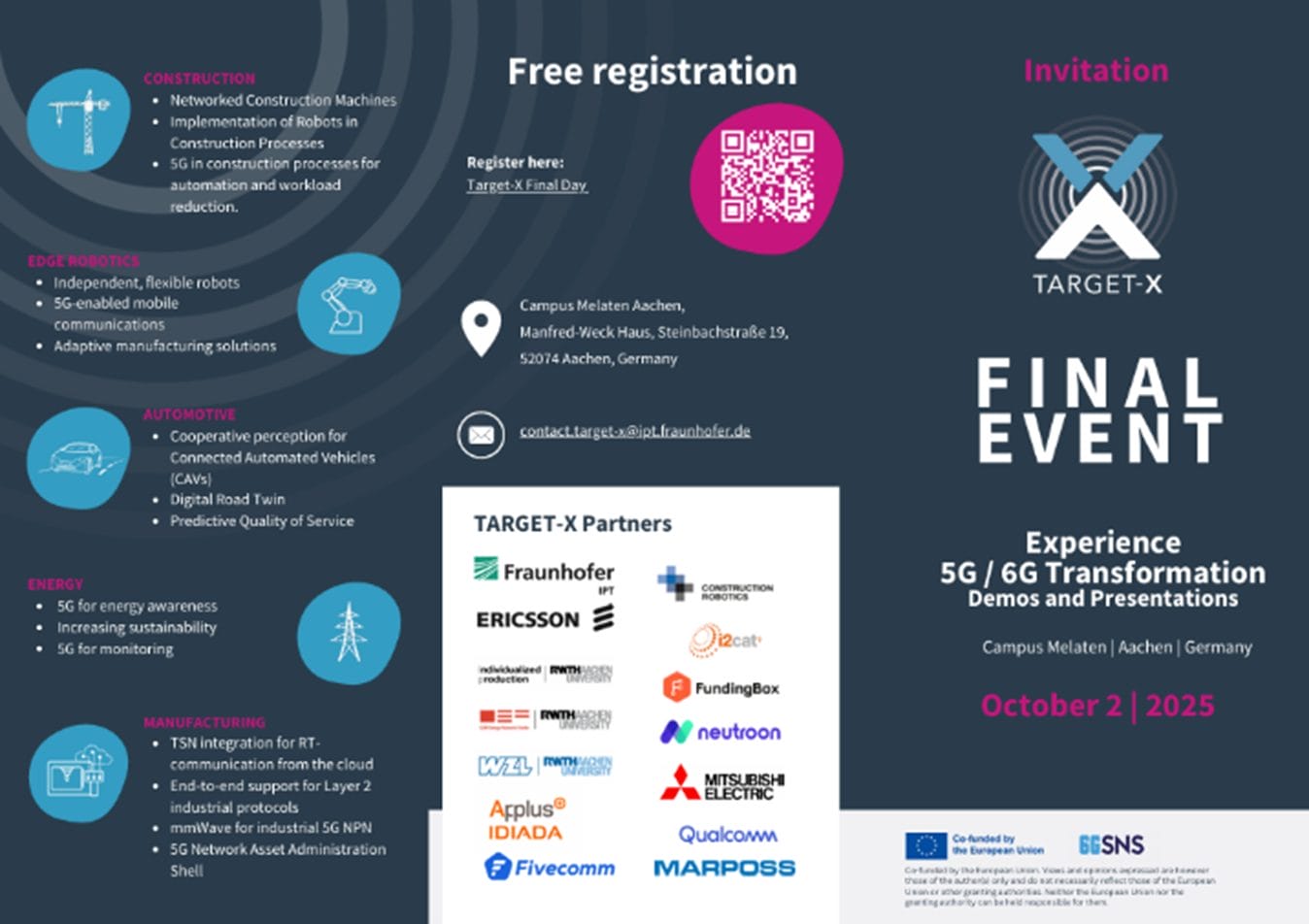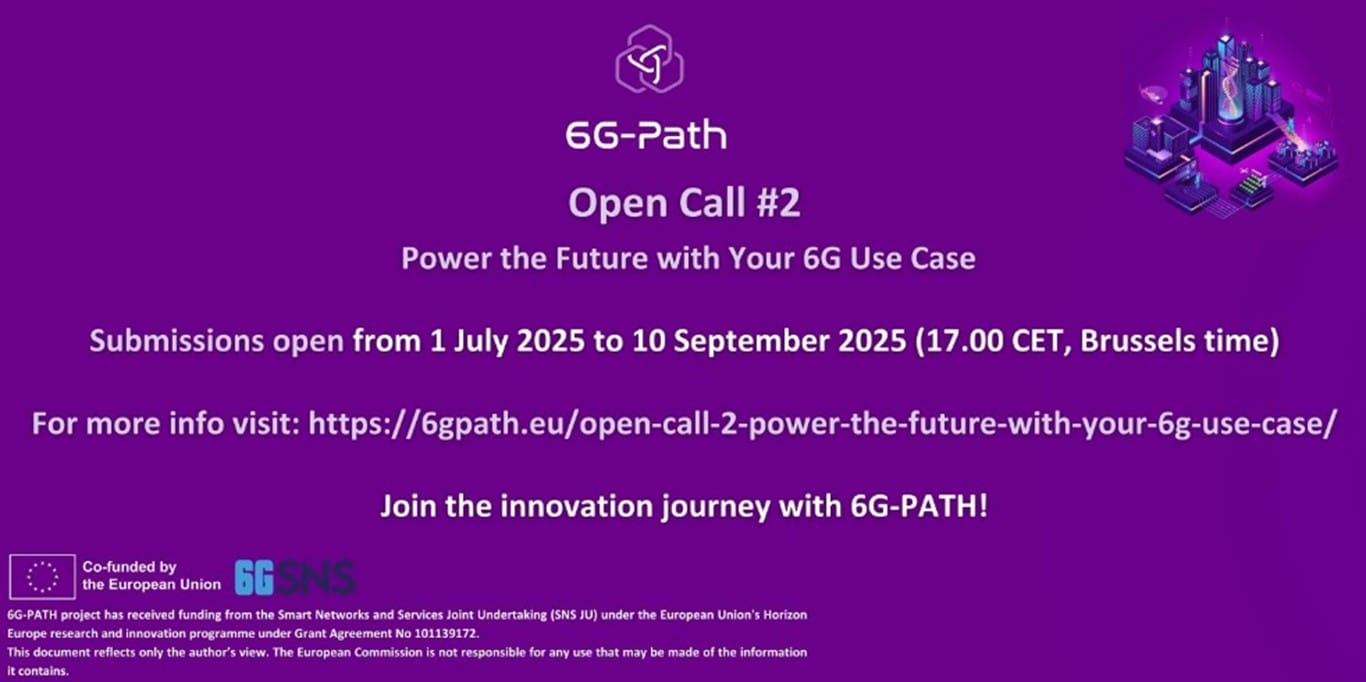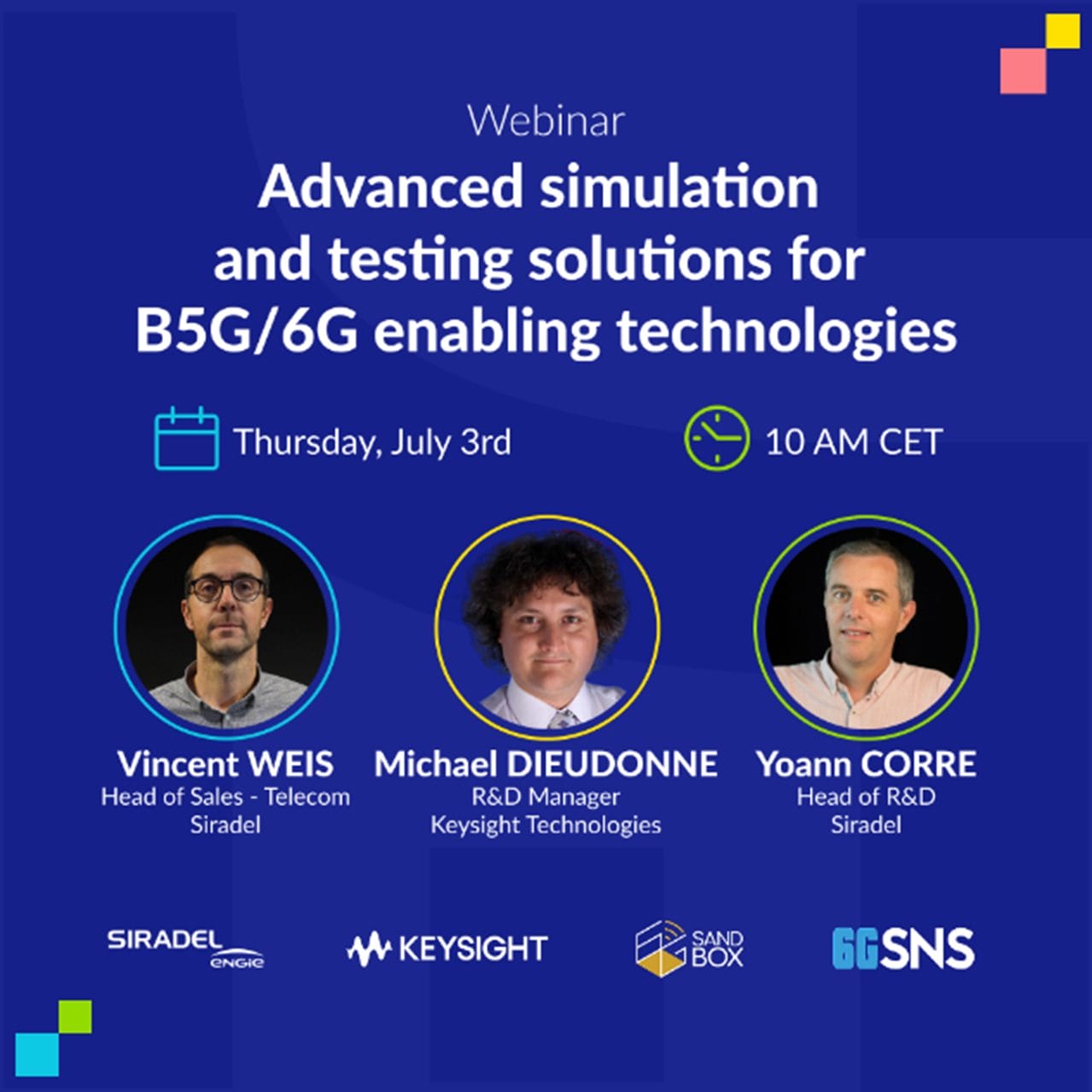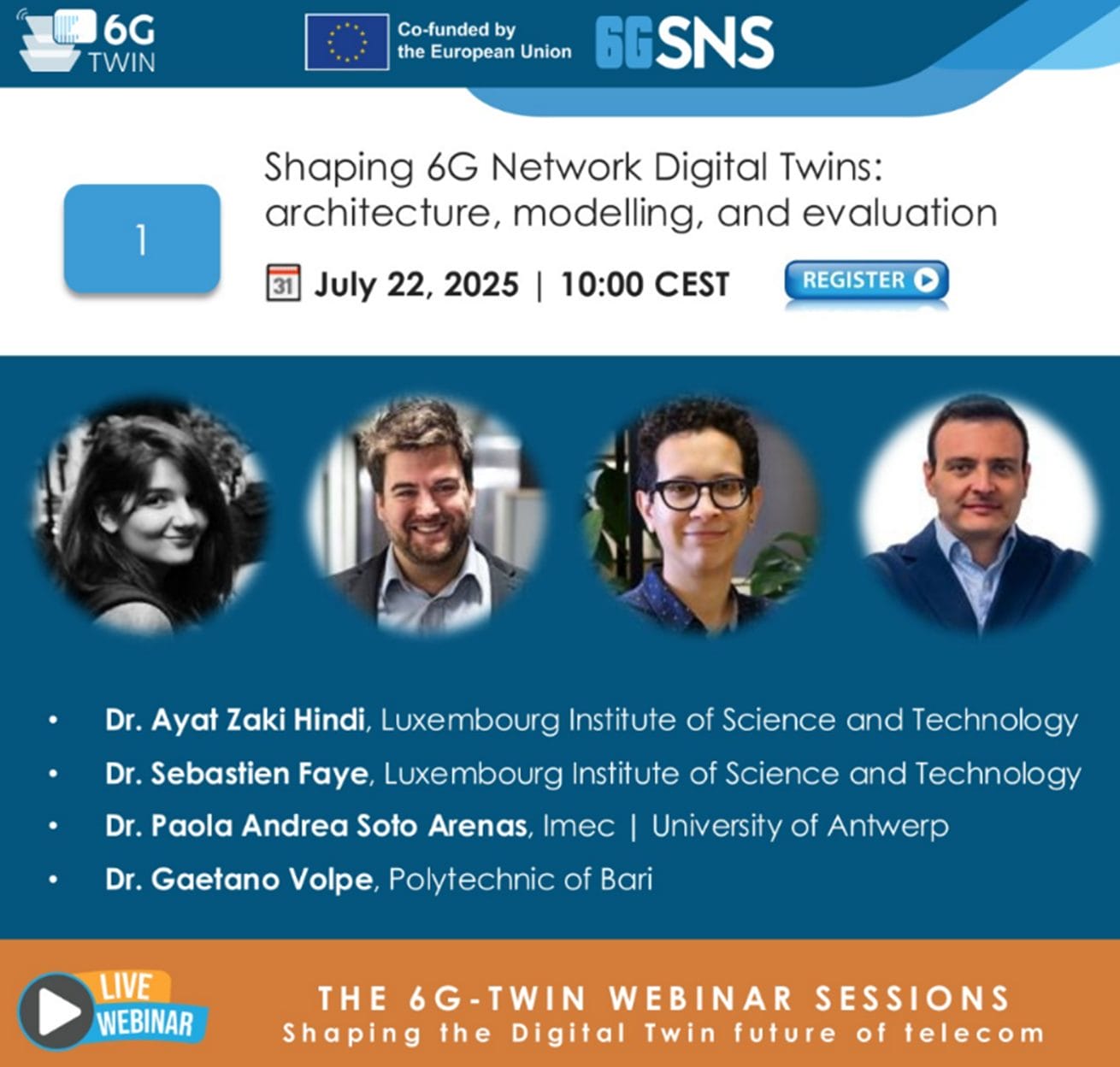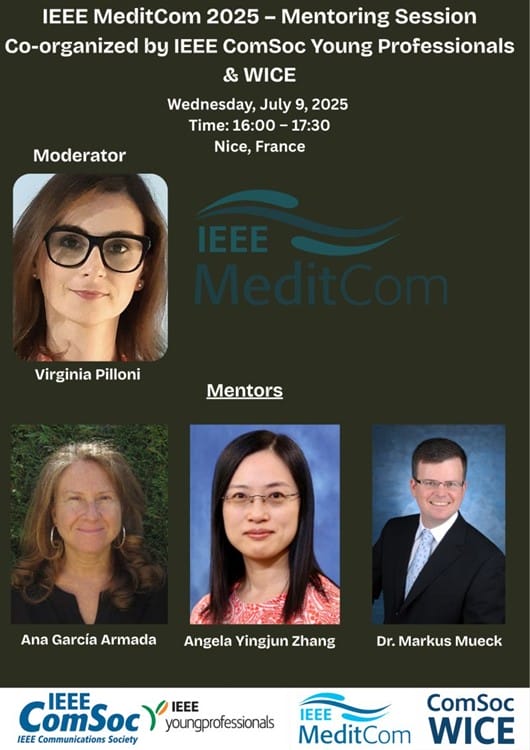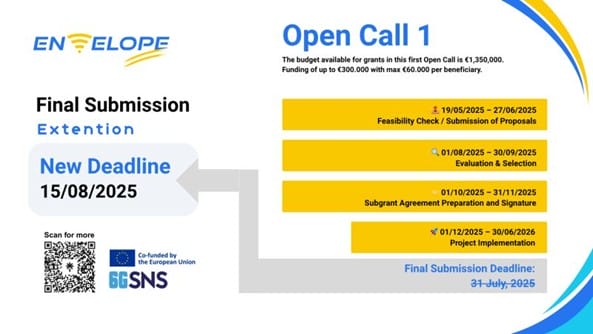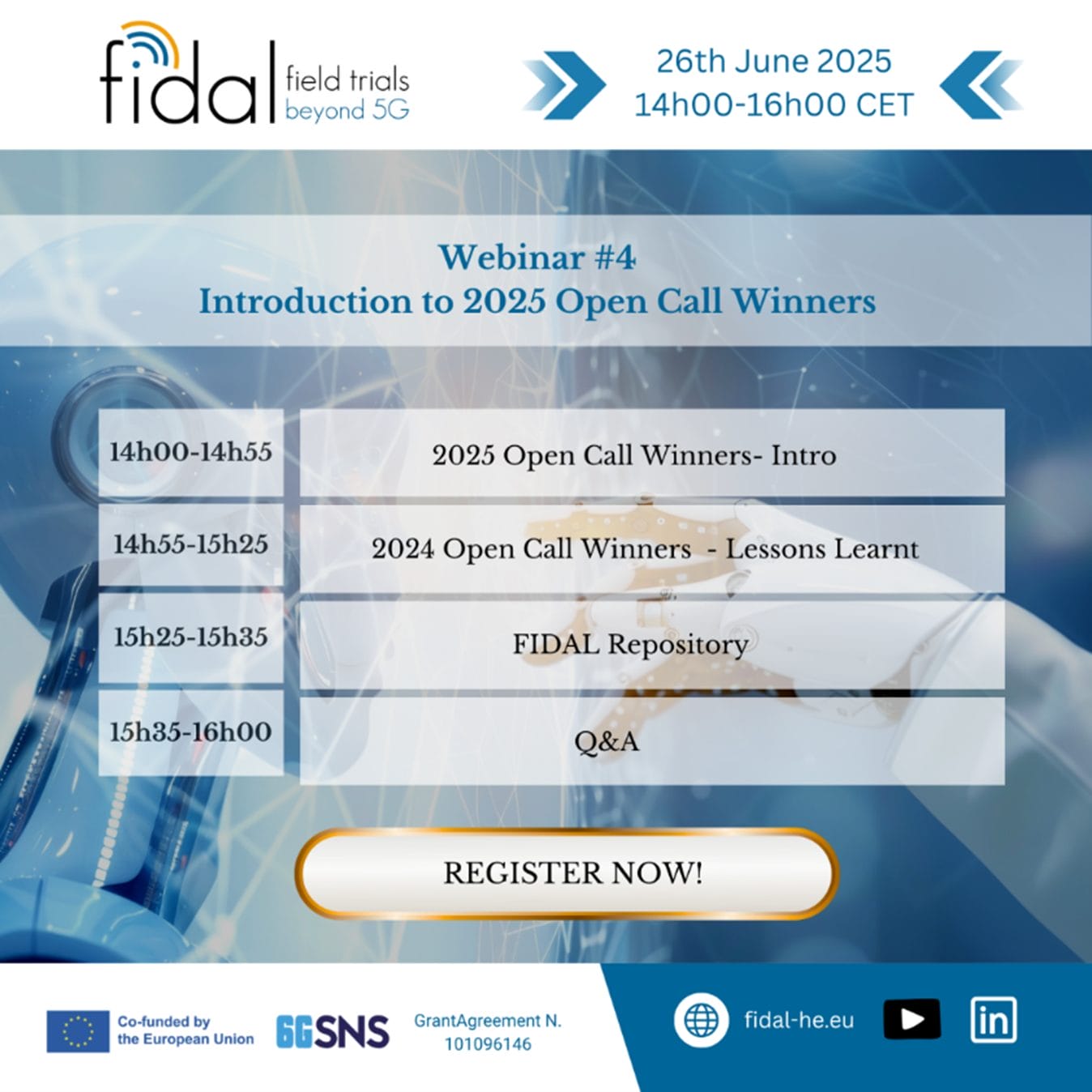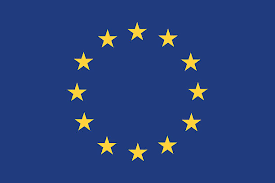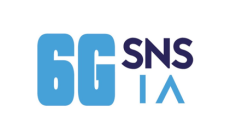
SNS JU July 2025 Newsflash
In this last newsflash of July 2025, find back
-
- a recap of events where SNS JU or the 5G and 6G communities have an impact,
- join the discussion followed by SNS JU projects news
- and do not miss any coming events in the Save-the-Dates !
5G and 6G Events catch-up:
Successful discussions around Trust, transparency, AI, and societal implications by SNS projects @ 6G Platform Berlin conference
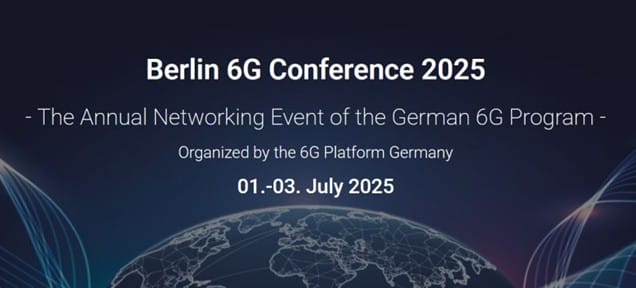
The 6G Platform Berlin Conference took place on 1-3 July 2025 at the Berlin Congress Center, gathering experts from industry, academia, and public institutions to address key topics related to the development of 6G networks. Discussions focused on trust, transparency, the role of AI, and the societal implications of next-generation connectivity.
Two SNS projects, 6G4Society and iTrust6G, took part in the programme.
Flavia Maragno spoke on behalf of 6G4Society during the session “Let’s Talk 6G: Trust, Transparency, and Science Communication.” The presentation explored public engagement strategies around 6G, supported by insights from workshops and a survey involving over 650 participants. Key themes included the societal, health, and environmental dimensions of 6G and the need to move from promoting acceptance to enabling democratic participation.
On 3 July, Mir Ghoraishi represented iTrust6G in the session “Trustworthiness of and by AI/ML for 6G.” His intervention focused on the project’s work to ensure the reliability, transparency, and security of AI technologies embedded in future network infrastructures.
Call for Papers: Special Issue on Sustainable Wireless Communication
The MDPI Open Access Journal Telecom is inviting paper proposals for a special issue titled “Sustainable Wireless Communication: Green Technologies and Energy-Efficient Networks,” with special issue guest editors EXIGENCE partners: Adamantia Stamou (AUEB), Artur Hecker (HWDU), Marvin Sanchez (DTC) and Luis Contreras (Telefonica).
This special issue aims to gather research focused on reducing the energy consumption and carbon footprint of wireless communication. This includes measuring and modeling energy use, developing algorithms to allocate energy and carbon efficiently across various ICT services (like video platforms, AI chatbots, and augmented reality), and re-engineering hardware, algorithms, protocols, and system architectures to prioritise sustainability. The goal is also to explore incentive mechanisms to encourage sustainable practices among ICT providers and end-users, ultimately shaping the green 6G era.
Authors are invited to submit their manuscripts by 30 April 2026, and can find the relevant topics, at the following link: MDPI Telecom Special Issue
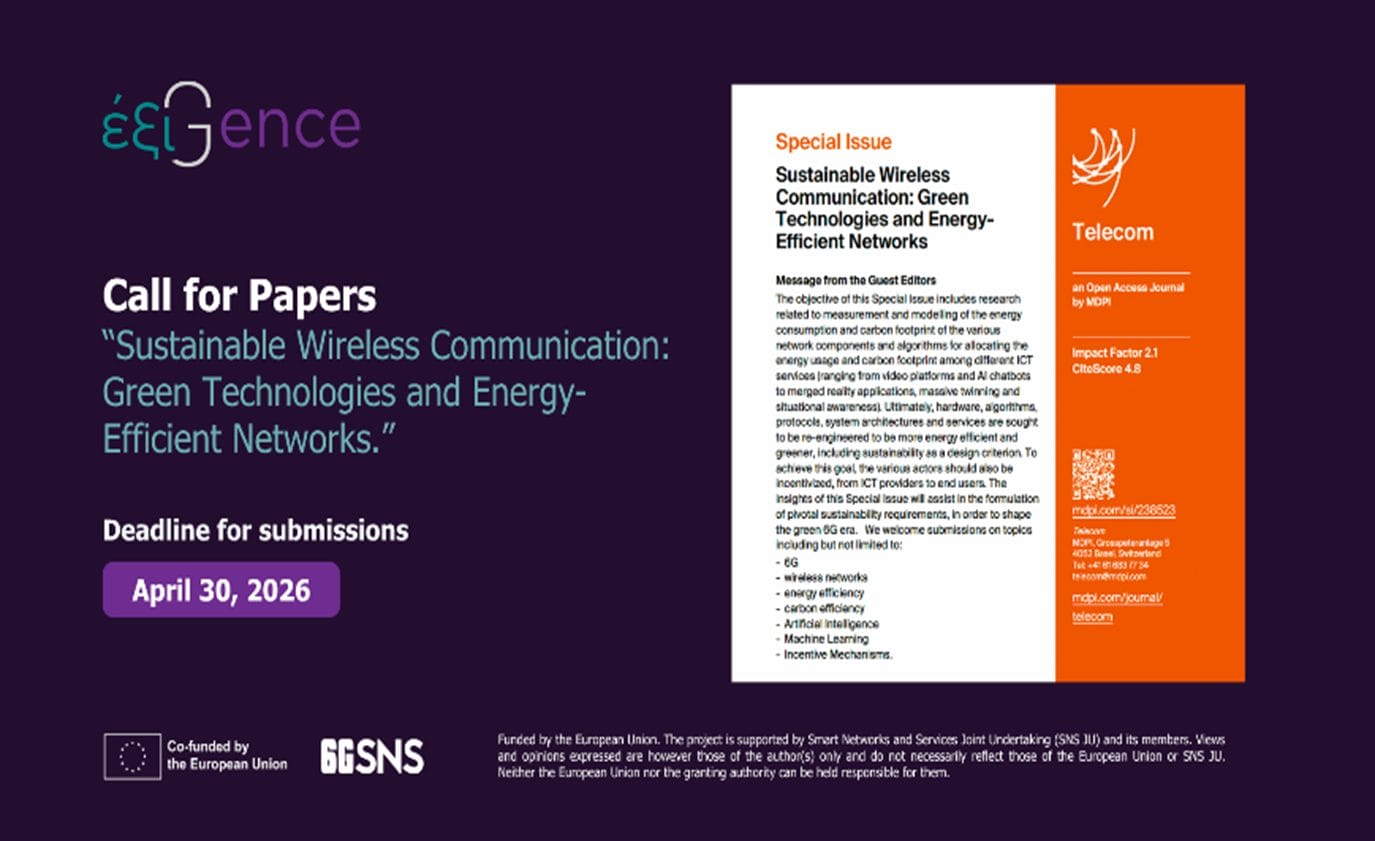
Topics of interest include, but are not limited to:
- 6G
- Wireless networks
- Energy efficiency
- Carbon efficiency
- Artificial Intelligence (AI)
- Machine Learning (ML)
- Incentive Mechanisms
Deep learning, AI and blockchain inputs from SNS projects @ IEEE NetSoft

The IEEE NetSoft 2025 conference took place from 23 to 27 June in Budapest, bringing together experts in softwarized networks, AI, and cybersecurity for next-generation communications.
The 6G-SANDBOX project was represented by Mohammad Farhoudi (University of Oulu), who presented a paper on a deep reinforcement learning-based orchestration framework for integrated aerial-terrestrial networks. The approach supports dynamic service composition using UAVs as aerial base stations, aligning with the project’s goal of validating AI-native orchestration across heterogeneous infrastructures.
The HORSE project was represented by Michael Danousis (Eight Bells Ltd), who presented a paper on the use of generative AI to structure and enhance cybersecurity knowledge. The work, in collaboration with Martel Innovate, aims to improve security practices in 6G environments.
UNITY-6G partners actively contributed to the event with a presentation by Coordinator Engin Zeydan on integrating data engineering and blockchain for secure, decentralized B5G/6G networks. The project also showcased a collaborative demo illustrating full orchestration of a distributed 5G cloud-native mobile network, including O-RAN, 5G Core, and transport layers. This demonstration highlighted UNITY-6G’s focus on openness, programmability, and AI-driven automation to enable flexible, multi-domain network management and end-to-end service continuity.

NAIFNET workshop
As part of IEEE NetSoft 2025, the First Workshop on Native AI in Future Networks Including 6G (NAIFNET) was held on 23 June 2025 in Budapest. The 6G-Cloud project actively contributed to the event, presenting three technical sessions: “Rethinking AI-Powered Service Orchestration: The Case for Decentralisation”, “AI-driven Self-Healing in Cloud-native 6G Networks through Dynamic Server Scaling”, and “MLOps as a Service for AI-Native 6G Networks”. These contributions addressed key challenges in building scalable, decentralised, and resilient AI-native network infrastructures. In addition, consortium members Slawomir Kukliński (Warsaw University of Technology) and Antonio Skarmeta (Universidad de Murcia) served as Symposium Co-Chairs, underscoring the project’s role in shaping the AI-native networking research agenda. The workshop, supported by several SNS JU projects, provided a platform for advancing collaboration in the development of intelligent next-generation networks.
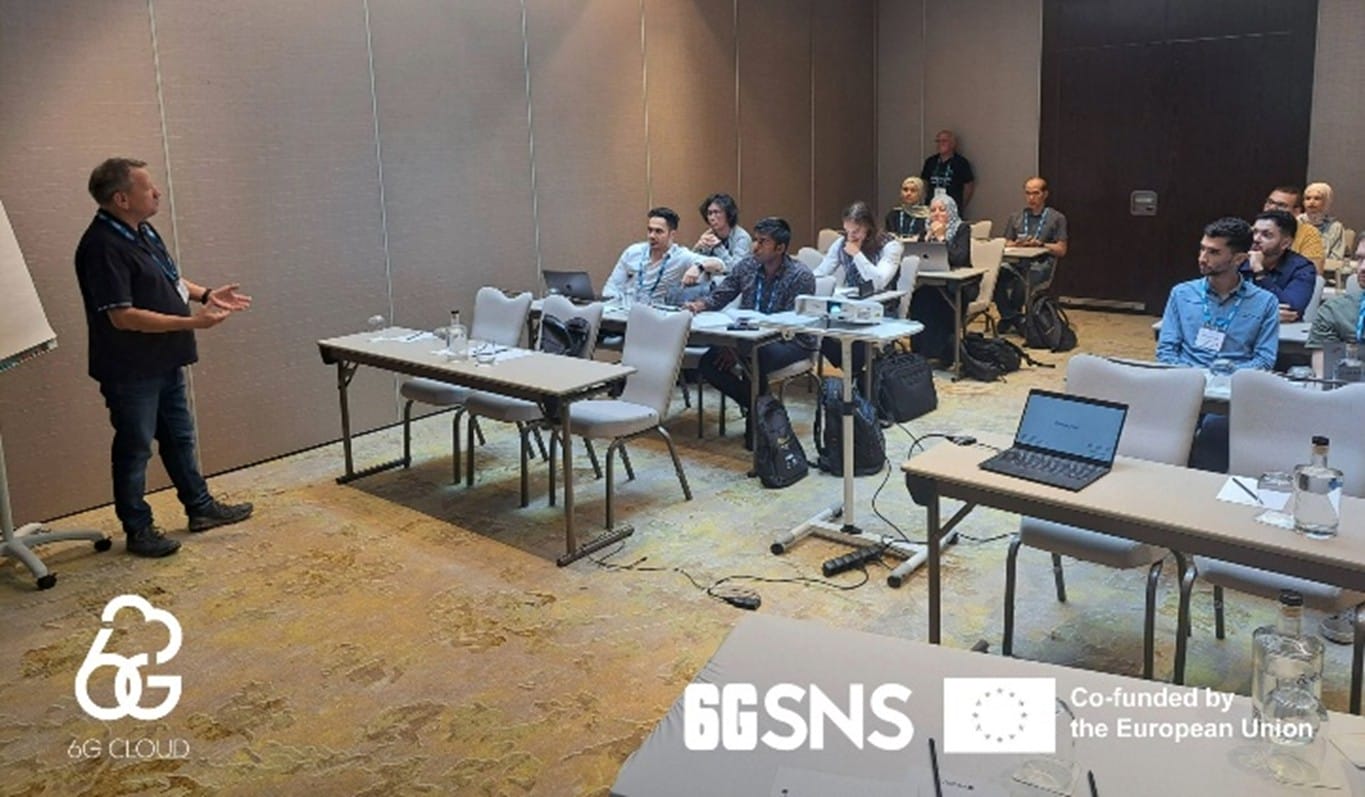
Deterministic networking and energy measurement exchange sessions organised by SNS projects @ IETF 123 Hackathon
The IETF 123 Hackathon took place on 19–20 July 2025 in Madrid, bringing together developers and researchers to collaborate on advancing Internet standards. Hosted by the Internet Engineering Task Force (IETF), the event focused on practical implementation and testing of emerging networking technologies.
Two projects funded under the SNS JU, DESIRE-6G and EXIGENCE, actively contributed to the hackathon.
The DESIRE-6G team, led by Telefónica Innovación Digital and Universidad Carlos III de Madrid, organised a challenge focused on deterministic networking. The objective was to design a Wireshark dissector for In-Band Telemetry (INT) headers, supporting real-time monitoring of Packet Replication, Elimination, and Ordering Functions (PREOF) in deterministic networks. This effort aimed to enhance performance observability in time-critical 5G and future 6G environments.
The EXIGENCE project team, including partners from TNO, Telefónica, and Huawei, contributed to the “GREEN framework and use cases” session. Their work focused on standardizing inter-domain energy measurement exchange. The team demonstrated an experiment on end-to-end monitoring of energy consumption during video streaming over a mobile device, aiming to integrate energy metrics into service delivery processes.

OpenInfra Edge Computing WG White Paper

A new white paper titled “Next Generation Edge: Edge Computing Architectures for Artificial Intelligence and Machine Learning Use Cases” was released by the OpenInfra Edge Computing Working Group. The publication provides an in-depth analysis of architectural strategies to support AI and machine learning at the edge, addressing key challenges such as latency, security, scalability, and data sovereignty.
The white paper was developed through broad collaboration and included contributions from the SNS JU projects ELASTIC and CONFIDENTIAL6G.
CONFIDENTIAL6G contributed its expertise in secure and scalable edge infrastructures, particularly focusing on deploying AI closer to the data source to improve responsiveness and trustworthiness. The project’s input helped address security and data protection concerns relevant to edge AI implementations.
ELASTIC supported the work by sharing insights from its research on resilient and efficient edge computing frameworks. These contributions reflected ELASTIC’s mission to enable high-performance, AI-driven services through advanced, distributed network architectures.
Testbeds presentations, open-source simulator and decentralised telemetry discussions by SNS projects @ ICTON 2025
The 25th edition of the International Conference on Transparent Optical Networks (ICTON) took place in Barcelona from 6 to 10 July 2025, hosted by Universitat Politècnica de Catalunya (UPC). The event gathered researchers from across the globe to discuss advances in optical and network technologies, with notable contributions from several SNS JU projects.
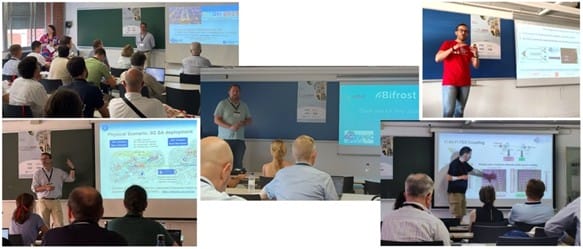

The 6G-EWOC project presented five papers. Key topics included the project’s testbed and digital twin for 5G networks, RaDAR-to-RaDAR communication, heterogeneous photonic integration, quasi-coherent reception for metro and access networks, and beamforming-assisted free-space optical links.
ECO-eNET contributed with a talk on the “Optical Networking Gym,” an open-source simulator designed to support machine learning research in optical networking, aiming to bridge AI and network experimentation.
DESIRE6G shared two contributions. One focused on multi-agent systems for reducing operational expenditures in dynamic traffic management. The other showcased a responsible internet proof-of-concept featuring user-driven path control and reinforcement learning-based routing deployed on the FABRIC testbed.
NATWORK presented research on decentralized telemetry, emphasizing secure and programmable data path monitoring, developed in collaboration with CNIT and Scuola Superiore Sant’Anna.
SNS projects contribution at summer school on optical communication 2025
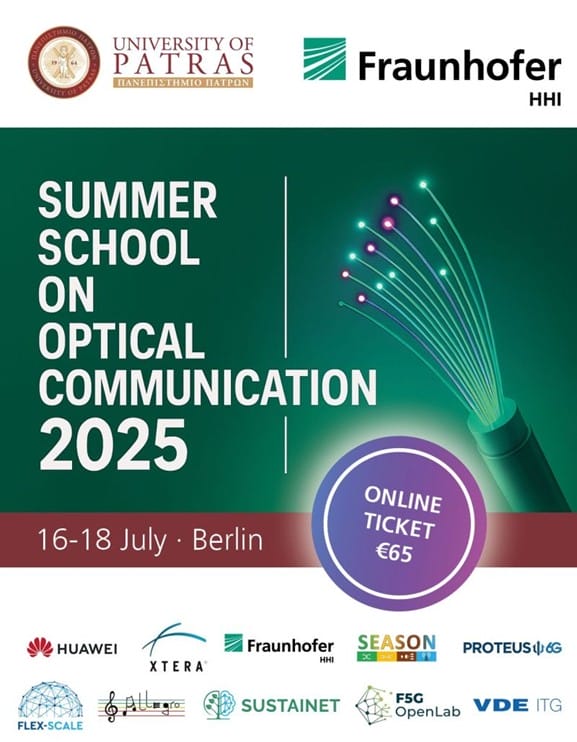
The Summer School on Optical Communication 2025 took place from 16 to 18 July 2025 in a fully virtual format, offering global access to advanced training in photonic technologies. The event gathered students, early-career researchers, and industry experts to explore cutting-edge developments in photonic integration, quantum communication, artificial intelligence, and sustainable ICT.
Organised with the participation of leading institutions such as Fraunhofer Heinrich Hertz Institute (HHI), Nokia Bell Labs, and University College London (UCL), the programme included three days of live expert sessions. Keynote speakers included Chuck Mattera, former CEO of Coherent Corp., who shared insights from over four decades in the photonics sector.
The event also served as a platform to showcase the involvement of several SNS JU projects. Notably, PROTEUS-6G, FLEX-SCALE, and SEASON were among the initiatives supporting the event. Their presence highlighted the role of next-generation optical and quantum communication systems within the broader context of 6G research.
Video for third joint webinar available
On 27 June 2025, the third joint webinar in a series on sustainable wireless design was held, bringing together the Horizon Europe and SNS JU projects 6G-SHINE, SUPERIOT, and TERRAMETA. The session continued the collaborative efforts initiated in previous editions, focusing on technical innovations aimed at enhancing the sustainability of future wireless networks.
The agenda featured expert presentations on a range of research topics, including attention-based channel prediction, high-performance terahertz (THz) reconfigurable intelligent surface (RIS) communications, and solution-processed materials for next-generation wireless systems. Presentations were delivered by Saeed Hakimi, Sean Ahearne, and Emanuel Abreu Antunes Carlos.
This third edition further strengthened dialogue among the participating projects and offered a platform for exchanging progress and approaches in the field of sustainable 6G technologies.
The recording of the webinar is available for viewing here
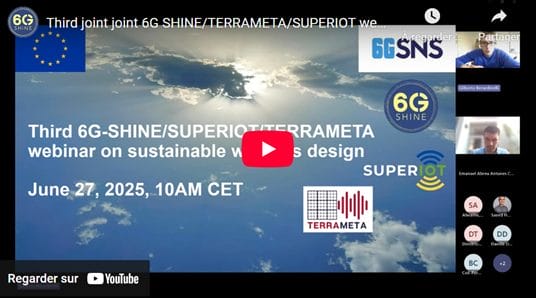
Confluent network, distributed control of 6G Networks services, and dynamic spectrum allocation demonstrated by SNS Projects @ OECC/PSC conference
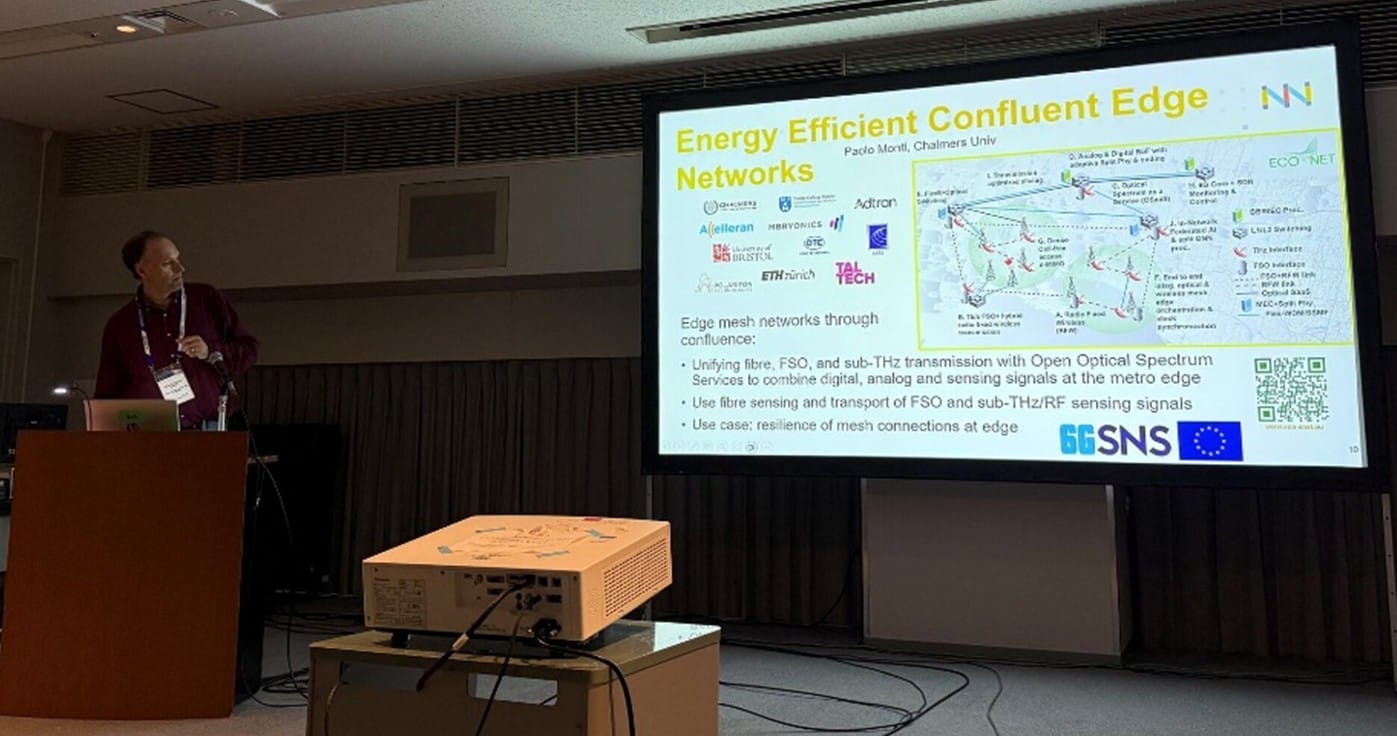
The OECC/PSC 2025 conference, held from 29 June to 3 July in Seoul, gathered global experts in photonics and communications to discuss advances in optical network technologies.
The ECO-eNET project contributed through workshops, tutorials, and invited talks showcasing its vision for integrated optical and radio transport systems. Dan Kilper (CONNECT Centre) presented the concept of the confluent network, aimed at unifying optical and radio layers for seamless end-to-end connectivity.
Marco Ruffini (Trinity College Dublin) led a tutorial on Optical Spectrum as a Service, highlighting ECO-eNET’s work on dynamic and flexible spectrum allocation.
Paolo Monti (Chalmers University of Technology) gave an invited talk on combining AI with confluent networks to enable efficient, resilient 6G infrastructures.
The DESIRE6G project also participated in the event. Luis Velasco (Universitat Politècnica de Catalunya) attended the associated International Conference on Photonics in Switching and Computing (PSC 2025) in Sapporo and presented the paper “Intelligent Reconfiguration of Distributed Control of 6G Network Services”. The work proposes a distributed control system that uses mobility prediction, knowledge sharing, and pre-training to dynamically reconfigure resources, ensuring service performance in mobile scenarios.
Experiences shared by SNS Projects on industrial, automotive and healthcare @ WFCS 2025
On 10-13 June was held, the 2025 edition of the IEEE International Workshop on Factory Communication Systems (WFCS) featured an Industry Forum organized by the DETERMINISTIC6G and PREDICT-6G projects, both funded under the SNS JU. The session convened experts from leading industrial and automotive companies to examine current trends and challenges in communication technologies for cyber-physical systems.
The forum included contributions from:
- Joao Lopes (NXP Semiconductors), who discussed the role of Time-Sensitive Networking (TSN) as a cross-vertical standard. He underlined TSN’s ability to unify diverse sectors such as automotive and healthcare, while pointing out the risks of transitioning from legacy systems and the need for layered, standardized architectures.
- Michael Bahr (Siemens), who reviewed the state of deterministic wireless technologies like Wi-Fi and 5G. He identified 6G as a potential enabler of end-to-end ultra-reliable low-latency communications, a key requirement for Industry 4.0 use cases.
- Filippo Dell’Agnello (IUVO Srl), who presented deployment experiences of industrial exoskeletons. He emphasized the need for deterministic connectivity, embedded offload control, and edge computing, particularly in the context of DETERMINISTIC6G research activities.
- Kirsten Matheus (BMW Group), who highlighted the complexity of in-vehicle communication systems and advocated for standardized solutions across the ISO OSI model. She emphasized the relevance of technologies such as 10BASE-T1S and TSN for future automotive networks.
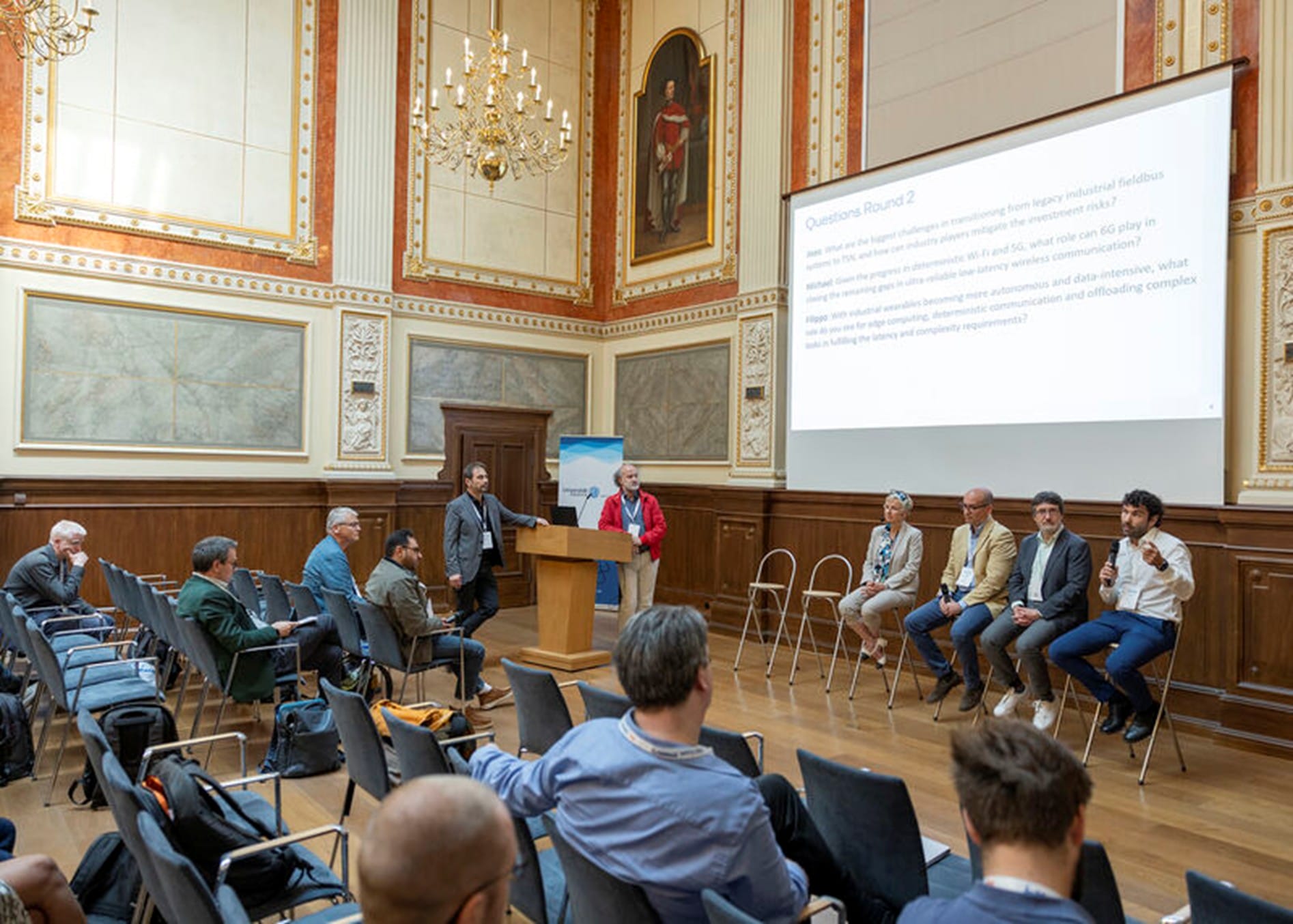
A panel discussion, moderated by Hans-Peter Bernhard (Silicon Austria Labs, JKU Linz) and Valerio Frascolla (Intel Corporation), explored communication requirements across industrial and automotive domains. Interoperability, determinism, and open standards emerged as common priorities for enabling real-time, scalable, and sustainable systems.
The session concluded with an open discussion, reinforcing the importance of collaborative research and standards-based innovation in advancing industrial communication technologies.
6G-MUSICAL was also actively represented through the participation of IMEC which delivered tutorials highlighting the capabilities of openwifi, including its advanced sensing features. These tutorials demonstrated how openwifi supports wireless Time-Sensitive Networking (TSN) essential for industrial automation environments requiring precise timing and reliability.
Ethical and societal implications of 6G raised by 6G4Society and SUSTAIN-6G Workshop at Roma TRE
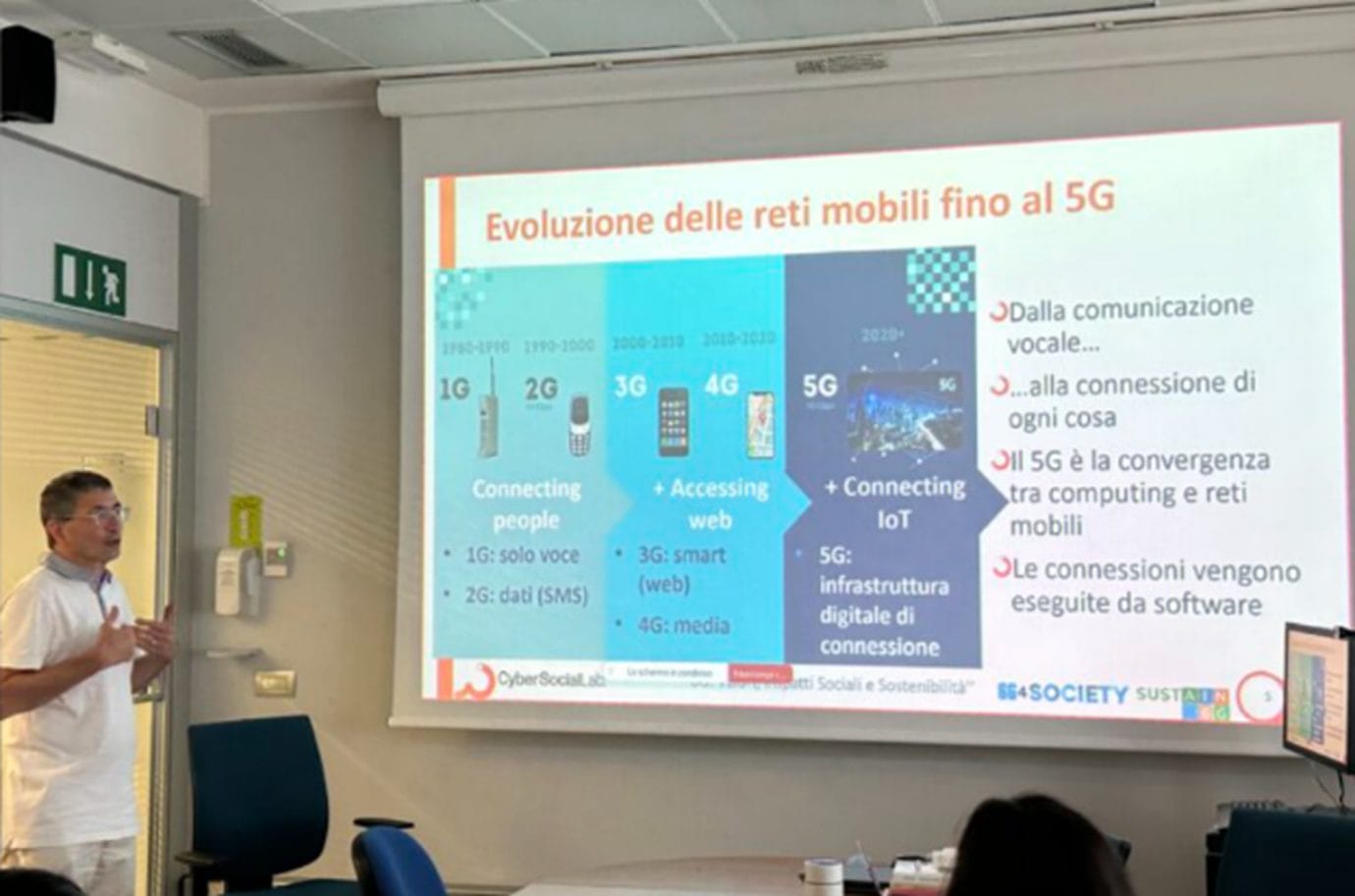
On July 4 and 6, 2025, the projects 6G4Society and SUSTAIN-6G took part in a workshop at Roma TRE University, hosted by CyberSocial Lab and involving students from the Master’s Program in Sociology. The sessions, led by Emanuela Tangari and Luigi Briguglio, focused on the ethical and societal implications of 6G technologies.
Through interactive surveys and open discussions, participants examined key issues such as privacy, trust, access, and digital inequalities. The exchanges emphasized the importance of asking not only what 6G will do, but what it should do, and for whom. Core values such as transparency, human dignity, and ethical governance were identified as essential principles.
The event illustrated both projects’ commitment to bridging technological research with social reflection and civic engagement, contributing to a more inclusive and value-driven approach to future communication systems.
Deepening participants understanding on Pervasise AI for Next -G networks by SNS Projects @ ARTIST Seasonal school
The ARTIST Seasonal School, titled “Pervasive ARTIficial Intelligence for Next-G Softwarized neTworks,” was held with the objective of deepening participants’ understanding of next-generation 6G network architecture and design approaches.
During the program, research teams from CNIT (Consorzio Nazionale Interuniversitario per le Telecomunicazioni) and Scuola Superiore Sant’Anna presented ongoing work carried out within the DESIRE6G, NATWORK, and FIDAL projects, funded under various open calls. The sessions highlighted cutting-edge research activities exploring AI integration, software-defined networking, and advanced programmability for future network systems.
The event also featured hands-on and laboratory sessions focused on practical topics such as P4 data plane programmability for 6G, in-band telemetry, and the application of artificial intelligence in network management. These activities provided attendees with direct experience of the tools and techniques shaping the development of future 6G infrastructures.
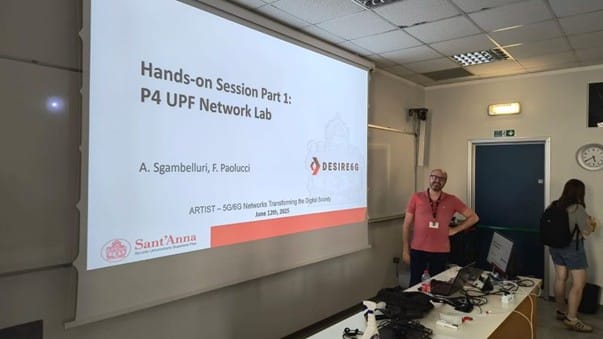
The SNS CO-OP project envisions a strong participation @ Techritory
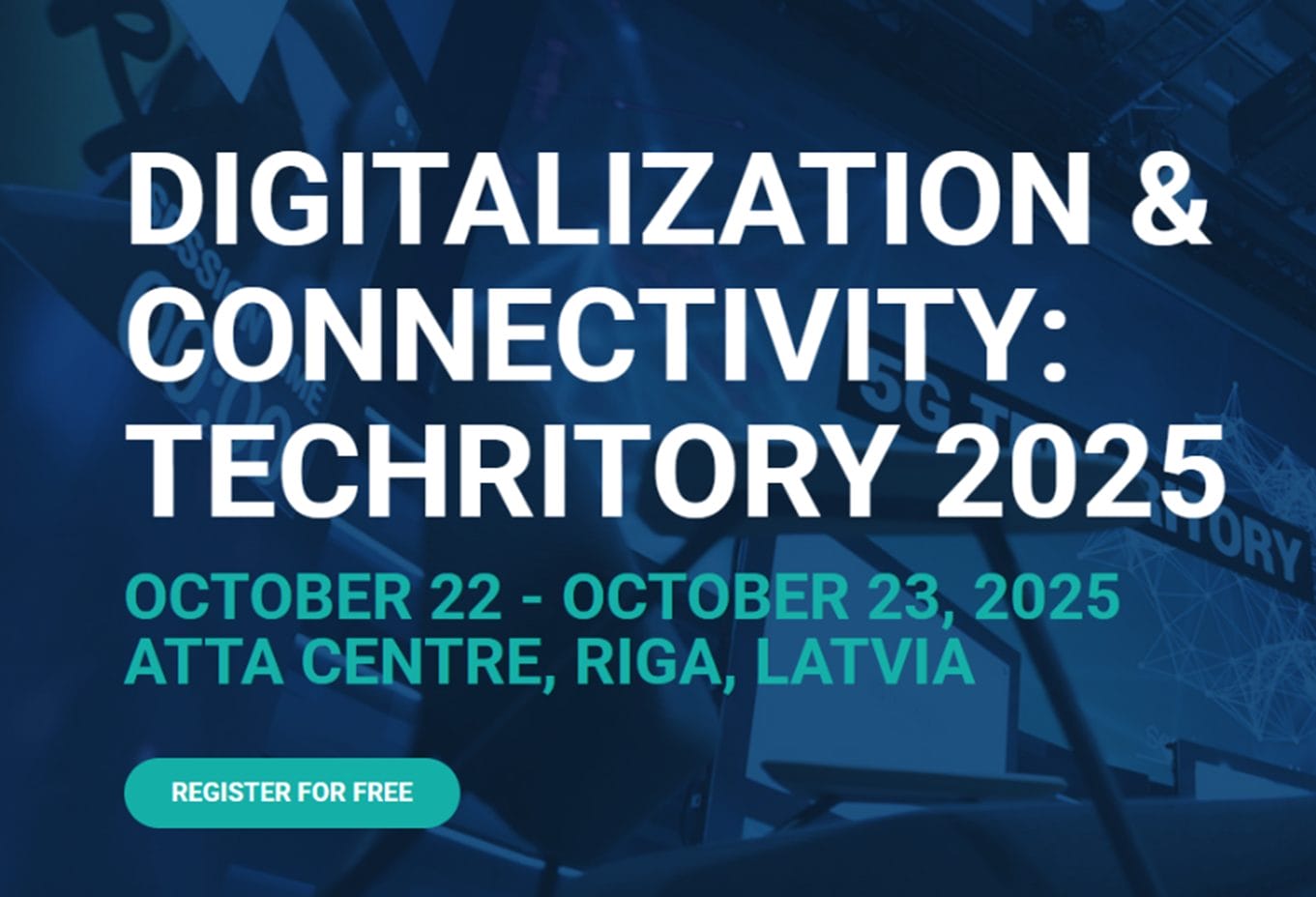
The Techritory Forum will take place in Riga, Latvia, from 22-23 October 2025, convening more than 600 participants including policymakers, industry leaders, academics, and technology experts. Under the theme “Connected Futures through Digital Paths”, the event will explore critical issues in digitalization and connectivity, including quantum technologies, 6G R&D, private networks, data infrastructure security, and non-terrestrial network solutions. The forum is recognized as a leading platform for fostering cross-sector collaboration and shaping the evolution of digital ecosystems.
The SNS CO-OP project will actively contribute to this year’s programme through several dedicated sessions and panels focused on advancing Europe’s leadership in next-generation connectivity and digital infrastructure. Coordination is led by Jose Almodovar, with contributions structured around key strategic areas supported by the SNS JU.
The SNS CO-OP participation will include:
- European Leadership in Key Digital sectors: Driving FP10 to success
- Panel with discussions on digital sectors with 8 participants
- Kostas Trichias
- Strengthening the Research-to-Standards Pipeline: Insights from WiTaR and Pre-Standardization Working groups of SNS JU
- Co-creation event with 5 speakers
- Pooja Mohnani, Veronica Vuotto
- Cloud panel
- Panel focus on the topic of Cloud and the landscape of the cloud ecosystem in Europe
- Prachi Sachdeva
- Joint Communications and Sensing in SNS Trials and Pilots: pathway to monetization of 6G networks
- Co-creation event with presentations by experts from SNS projects
- Carles Anton-Haro, Raffaele De Peppe
Call for Papers Open for 6GARROW Workshop at IEEE Globecom 2025
The 6GARROW project, in collaboration with 6G-DISAC and 6G-GOALS, announced the call for papers for its upcoming workshop titled “AI-Native Communication Systems Towards Intelligent, Interoperable, and High-Efficiency Communications (IIHECs)” at IEEE Globecom 2025, to be held between 8-12 December 2025.
The workshop aims to bring together researchers and industry experts to explore AI-driven wireless communication systems, focusing on emerging technologies shaping next-generation networks. Topics of interest include AI-native network architecture, intelligent edge computing, autonomous network management, and machine learning for radio resource optimization.
The scope covers both the technical integration of AI/ML in wireless systems and the regulatory frameworks affecting their design and deployment, considering international regulations such as the US Executive Order on AI and the European Artificial Intelligence Act.

Submissions are invited on areas including architectural solutions for AI/ML at central and edge processing, AI/ML for 6G cellular and RLAN, cross-layer orchestration, semantic communications, federated learning, energy efficiency, and compliance with government regulations.
The deadline and submission details are available on the official workshop page. Researchers and innovators are encouraged to contribute to defining the future of AI-enabled wireless networks.
Call for Papers: IEEE Communications Standards Magazine Special Issue on Future Mobile Core
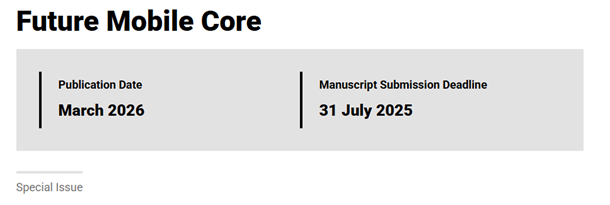
Guest editors for the special issue included Rui Luis Aguiar (Instituto de Telecomunicações), Periklis Chatzimisios (International Hellenic University), Namseok Ko (Electronics and Telecommunications Research Institute), Xu (Tony) Xia (China Telecom Research Institute), and Huanzhuo Wu (Nokia).
More information is available here.
The IEEE Communications Standards Magazine announced a call for papers for a special issue dedicated to the future of the mobile core network. The issue aims to address the evolving architecture, features, and standardization challenges of mobile core networks, particularly in the context of 6G development.
While extensive research has focused on radio access network evolution, less attention has been given to the vision and design of future mobile core networks. This special issue seeks contributions exploring theoretical and practical aspects, including architecture evolution, virtualization technologies, business and technical requirements, security, interoperability, and deployment experiences.
Manuscripts were invited to conform to standard IEEE formats and to be submitted via Manuscript Central under the “Wireless and Radio Communications” topic. The submission deadline was set for 31 July 2025, with author revisions notified by 1 October 2025 and final decisions by 1 December 2025. The publication was scheduled for March 2026.
SCoDIHNet news
1/ The European Enterprise Network (EEN) Digital group has the following action plan together with SCoDIHNet
- Collaboration with third countries (South Korea; India is a new member)
- Cooperation EIT Digital, TEF, EIC, EDIH..
- Cooperation IDEAL IST
- Promotion of OpenGPT-X
2/ EEN and SCoDIHnet are following these events:
3/ EEN is looking after an organisation which is member of SCoDIHNet and EEN in order to accelerate the cooperation between the 2 initiatives.
4/ Cooperation with the Smart Connectivity Thematic Working Group is still active, SCoDIHNet is invited to make a new presentation at the next meeting planned on 10 September 2025.


- PIMRC 2025, 1-5 September 2025
- 2025 Glue Technologies for Space Systems Technical Panel Ph.D. Summer School, 1-5 September 2025
- SNS CO-OP webinar series on National Initiatives: Resilience in 6G – the Finnish view, 4 September 2025
- 5th ACM International Conference on Information Technology for Social Good, 3-5 September
- ACM SIGCOMM, 8-11 September 2025
- TARGET-X Webinar: Outcome and Results, 9 September
- DETERMINISTIC6G Final Project Summit, 11 September 2025
- IEEE Conference on Standards for Communications and Networking, 15-17 September 2025
- SoftCom 2025, 18-20 September 2025
- NetworldEurope – Workshop: Non-Terrestrial Networks, 19 September 2025
- European Microwave Week 2025, 21-26 September 2025
- 6G Forum at the EuMW 2025, 22 September 2025
- EN-IOT – 2nd Workshop on Energy Neutral and Sustainable IoT Devices and Infrastructrure, 22 September 2025
- AIOTI Days 2025, 22-23 September 2025
- 5G-ACIA 35th Plenary Meeting in Frankfurt am Main, 22-24 September 2025
- FNS Partner Event & National 6G Conference, 7 October 2025
- WueWoWAS’25, 6-8 October 2025
- 6G Forum 2025, 7-9 October 2025
- India Mobile Congress, 8-11 October 2025
- Network X, 14-16 October 2025
- NEM Summit 2025, 21-22 October 2025
- Techritory 2025, 22-23 October 2025
- Brooklyn 6G Summit, 23-25 October 2025
- 6G-XR Impact Day – Advancing Immersive Connectivity for the 6G Era, 28 October 2025
- Thinknet 6G Summit 2025: Bavaria Innovative, 28-29 October 2025
- IEEE Conference on Network Functions Virtualization & Software Defined Networks, 10-12 November 2025
- Empowering 6G Networks: 2nd Workshop on Advancements in Research Infrastructures, Adaptive Frameworks, and Global Architectural Evolution (ATHENA 2025), 10-12 November 2025
- 4th International Conference on 6G Networking, 12-14 November
- EFECS 2025 – the European Forum for Electronic Components and Systems, 3-4 December 2025
- IEEE Globecom 2025, 8-12 December 2025
- IEEE – 6th Workshop on ‘‘Emerging Topics in 6G Communications’’, 8-12 December 2025
- ETSI – Software & Standards for Smart Networks & Services 2026, 2-5 February 2026
- MWC 2026, 2-5 March 2026
- IEEE INFOCOM 2026, 18-21 May 2026
- EuCNC & 6G Summit 2026, 2-5 June 2026
SNS JU Project news:
TARGET-X organized Automotive and Creative Deep Dives
______
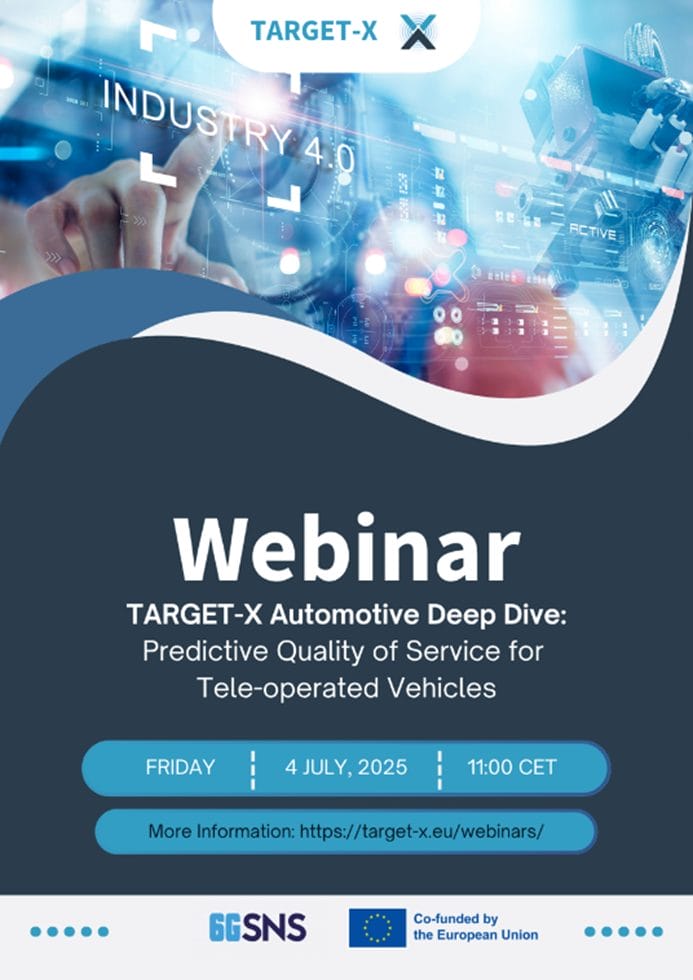 TARGET-X Automotive Deep Dive: Predictive Quality of Service for Tele-operated Vehicles
TARGET-X Automotive Deep Dive: Predictive Quality of Service for Tele-operated Vehicles
This session examines how 5G networks support Connected and Automated Mobility (CAM) services. It focuses on the Predictive Quality of Service (QoS) concept for tele-operated vehicles, developed and tested within the TARGET-X project. The discussion covers mechanisms for network-application information exchange and the application of 5G capabilities including exposure APIs and network data analytics to improve service reliability and user experience.
- Date: Friday, 4 July 2025
- Time: 11:00–12:30 CET
- Registration: Link
- Speaker: Jad Nasreddine, Senior Researcher, i2CAT Foundation (TARGET-X WP Lead Automotive)
 Construction Deep Dive: 5G for Automation and of Deconstruction Processes
Construction Deep Dive: 5G for Automation and of Deconstruction Processes
This webinar addresses the application of 5G in supporting automated deconstruction in construction sites, contributing to circular economy practices. A demonstrator system developed in TARGET-X is presented, incorporating Extended Reality (XR) for adaptive planning and execution of deconstruction tasks under real-world trial conditions. The session highlights real-time visualization and machine control workflows designed to optimize material recovery and reduce waste.
- Date: Tuesday, 22 July 2025
- Time: 14:00–15:30 CET
- Registration: Link
- Speakers: Victoria Jung and Chu Han Wu, Research Associates, RWTH Aachen University
6G-PATH and SUNRISE-6G on intelligence to the network edge @ the 10th B5G-PINE workshop
______
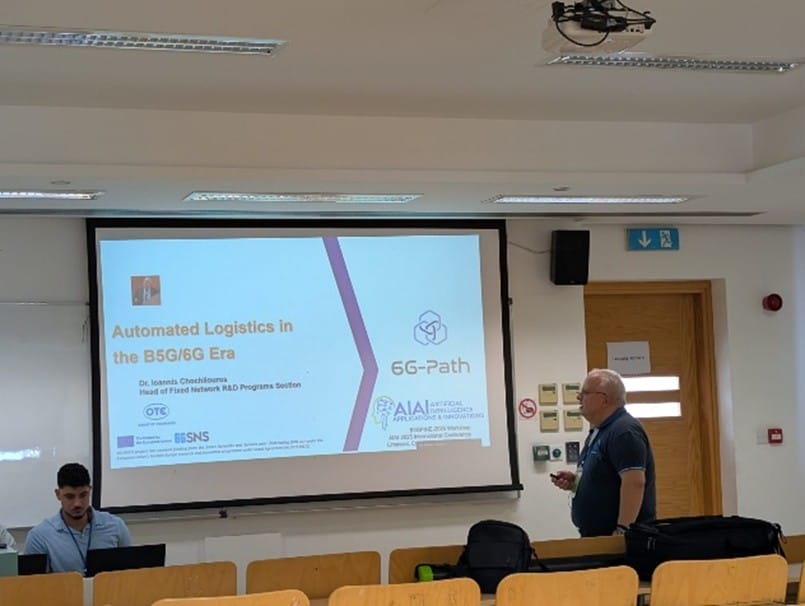
From 26 to 29 June 2025, the 10th Workshop on “B5G – Putting Intelligence to the Network Edge” (B5G-PINE 2025) was held in a hybrid format at the Cyprus University of Technology in Limassol, Cyprus. The event was part of the 21st International Conference on Artificial Intelligence Applications and Innovations (AIAI 2025). It provided a platform to explore advancements in bringing intelligence to the network edge in preparation for future 6G systems.
SUNRISE-6G and 6G-PATH, made notable contributions to the workshop.
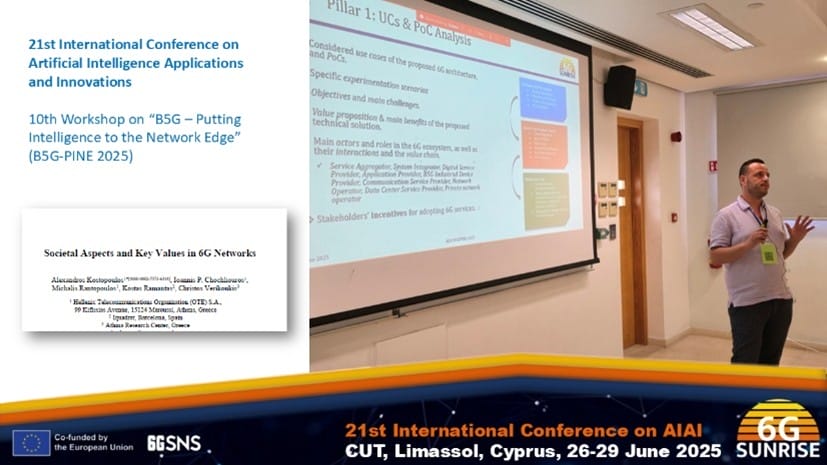 SUNRISE-6G was featured in Session 4 (AIAI: B5G-PINE 1) with the presentation of a peer-reviewed paper titled “Societal Aspects and Key Values in 6G Networks.” The paper examined issues such as societal expectations, sustainability, ethics, and inclusiveness. It reflected the project’s commitment to human-centric innovation through open and ethical experimentation. SUNRISE-6G aims to build a pan-European federation of 6G infrastructures based on a “Network of Networks” model. The project supports cross-domain vertical onboarding, Testing-as-a-Service, federated AI integration, intent-driven lifecycle management, joint communications and sensing, RAN exposure, digital twinning, and non-terrestrial 6G access.
SUNRISE-6G was featured in Session 4 (AIAI: B5G-PINE 1) with the presentation of a peer-reviewed paper titled “Societal Aspects and Key Values in 6G Networks.” The paper examined issues such as societal expectations, sustainability, ethics, and inclusiveness. It reflected the project’s commitment to human-centric innovation through open and ethical experimentation. SUNRISE-6G aims to build a pan-European federation of 6G infrastructures based on a “Network of Networks” model. The project supports cross-domain vertical onboarding, Testing-as-a-Service, federated AI integration, intent-driven lifecycle management, joint communications and sensing, RAN exposure, digital twinning, and non-terrestrial 6G access.
6G-PATH co-organized the workshop and presented six peer-reviewed papers. These covered topics including AI-driven network orchestration, smart healthcare, automated logistics, and sustainable agriculture in 6G environments. The project demonstrated its role in promoting integrated and AI-enabled telecommunications systems and advanced edge network technologies.
TARGET-X final event on 2 October 2025
______
The TARGET-X project will hold its final event on 2 October 2025 in Aachen, Germany, marking the completion of three years of research, trials, and innovation in next-generation connectivity. The event will take place at the Laboratory for Machine Tools and Production Engineering (WZL) of RWTH Aachen University on the Campus Melaten.
Funded by the SNS JU under Horizon Europe, TARGET-X aimed to accelerate the digital transformation of key European industries through large-scale trials of 5G and 6G technologies. The project focused on verticals such as manufacturing, energy, automotive, and construction, with key innovations in localization, digital twinning, and sensor-network data fusion.
The Final Event will feature presentations on project outcomes, including results from the Open Calls and trial sites. Highlights of the programme include talks from representatives of Fraunhofer IPT, Ericsson, and RWTH Aachen University, along with demonstrations of cutting-edge use cases at the 5G-Industry Campus Europe testbed.
Live demos and networking opportunities will allow participants to engage directly with the technologies and partners that have shaped the project’s achievements, offering insight into the role of 5G and 6G in future industrial systems.
More information and registration are available here.
The 6G-PATH Open Call #2 has opened
______
The 6G-PATH project launched its second Open Call on 1 July 2025, aimed at supporting the development of innovative use cases in the Beyond 5G (B5G) and 6G domains. The call targeted startups, SMEs, and research and technology organisations from Horizon Europe Member States and associated countries, offering up to €60,000 in funding per selected project. In total, 30 projects are expected to be funded.
To support potential applicants, an online information webinar was held on 9 July 2025. The session provided details on the scope of the call, eligibility criteria, evaluation process, and the available technical and business support. The 6G-PATH team also presented the project’s testbed infrastructure, which includes seven project-deployed platforms and two testbeds funded through the first Open Call.
The Open Call focused on four key application areas: Health, Education, Smart Cities, and Farming. Applicants were invited to propose use cases that could leverage the 6G-PATH infrastructure and contribute to the evolution of the European 6G landscape.
The application deadline was set for 10 September 2025 at 17:00 CEST. The call represented a significant opportunity for organisations aiming to validate and advance their 6G-related innovations within a structured experimental environment.
Further information on the Open Call and webinar is available at: 6G-PATH Open Call #2
Webinar: Register for the 2nd InfoWebinar next 6 August 2025 (11h00 CEST)
6G-XCEL @ the SLICES-RI / CONVERGE Summer School
______
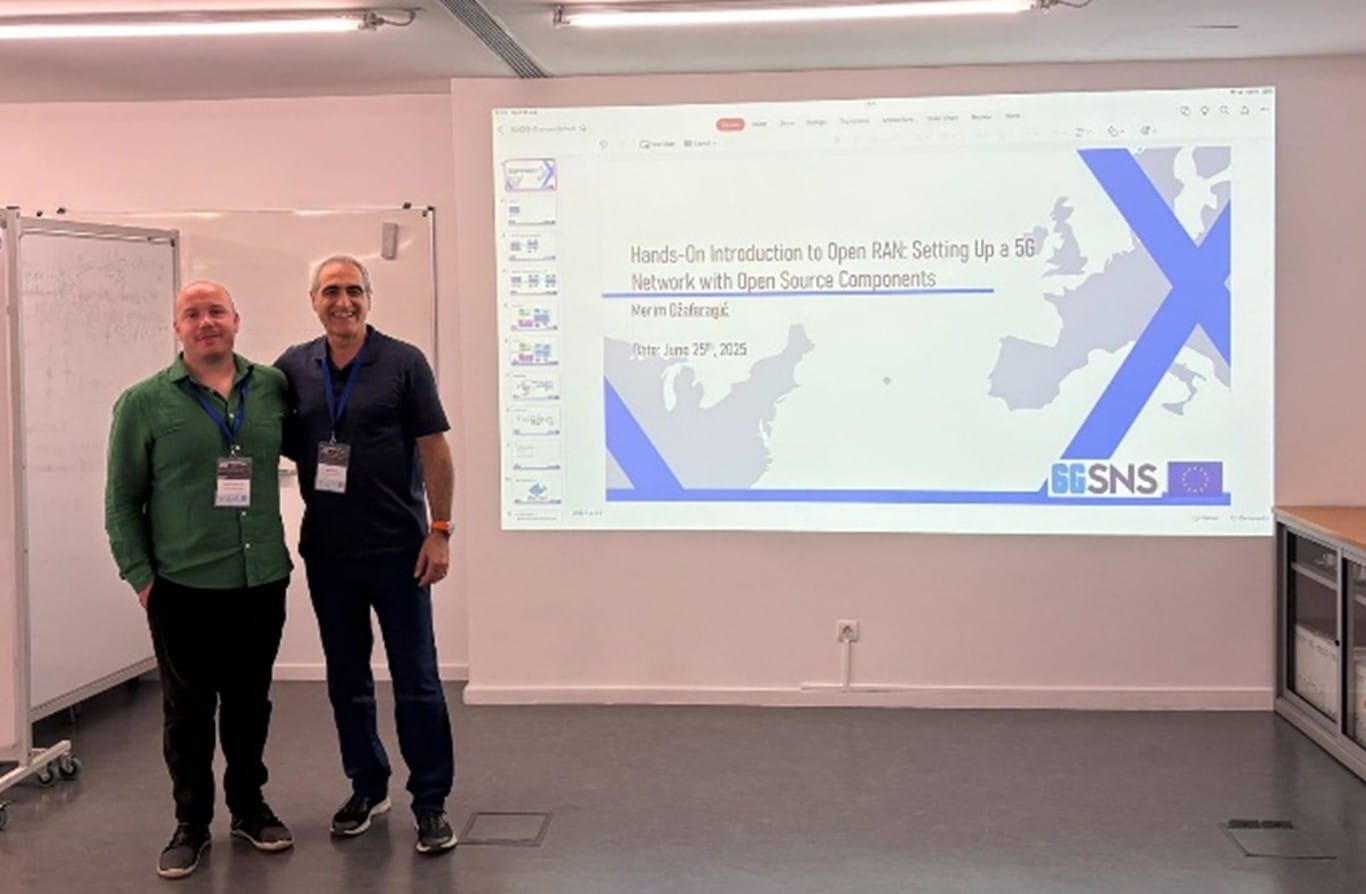
From June 25 to 27, 2025, the SLICES-RI and CONVERGE Summer School provided students with practical training on Open RAN and 5G technologies. The event aimed to equip participants with an end-to-end understanding of modern wireless network deployment using open-source tools.
The program included a hands-on session where students set up a basic 5G network using srsRAN, Open5GS, FlexRIC, and O-RAN SC RIC. Key technical concepts such as Open RAN architecture, CU/DU split, and xApp deployment were addressed. Participants also collected and analyzed real network data, replicating scenarios found in actual deployments.
6G-XCEL contributed to the session, supporting the goal of fostering technical expertise in emerging network technologies. The initiative formed part of a broader effort to engage and train future professionals in the evolving 6G landscape.
MARLISE presented by NANCY @ IEEE CLOUD 2025
______
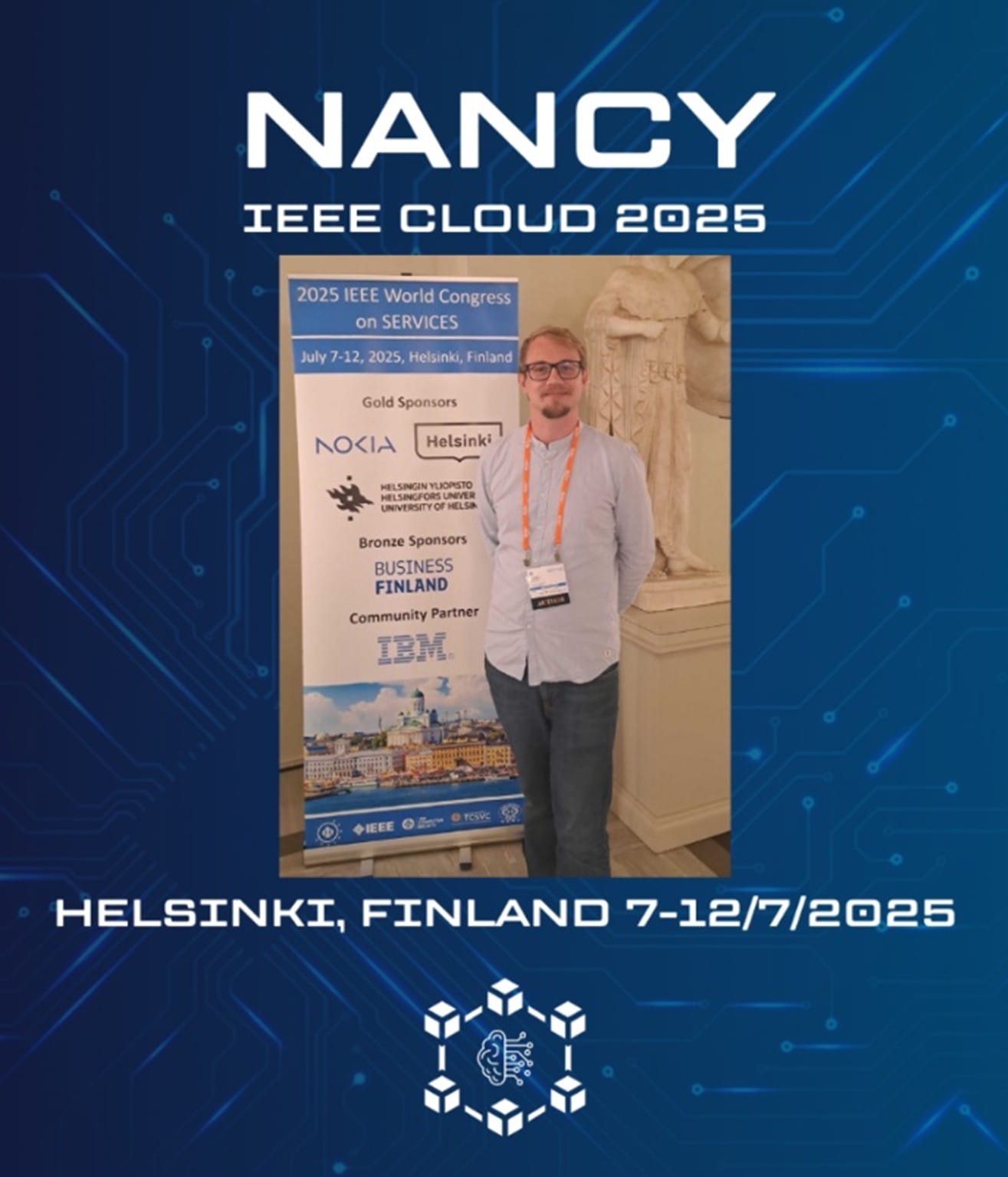
The IEEE International Conference on Cloud Computing (CLOUD 2025) was held from 7 to 12 July 2025 in Helsinki as part of the IEEE World Congress on SERVICES. The event focused on advances in cloud and edge computing, XaaS paradigms, and intelligent systems, bringing together researchers and industry stakeholders.
The SNS JU project NANCY was represented by the Jožef Stefan Institute, which presented MARLISE, a Multi-Agent Reinforcement Learning-based In-place Scaling Engine. Developed to improve resource elasticity in edge-cloud environments, MARLISE enables real-time, dynamic scaling beyond the limitations of static methods.
This work contributes to NANCY’s goal of building intelligent, adaptive infrastructure for Beyond-5G networks. It was carried out in collaboration with the MSCA TimeSmart project and shared through a peer-reviewed paper, demo, and open-source code.
Robotics and edge AI presented by TARGET-X @ AUTOMATICA
______
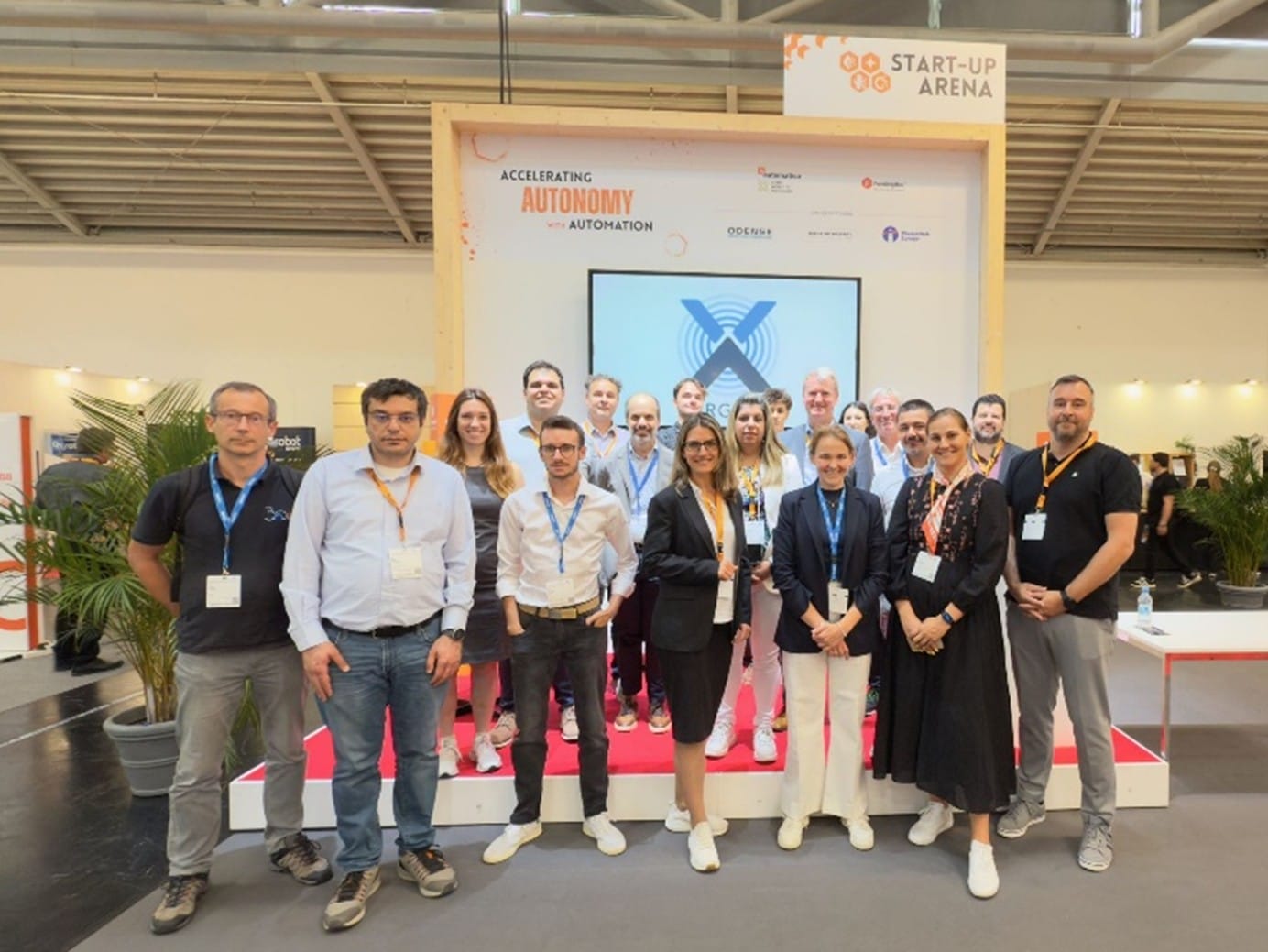
Automatica Munich 2025, a leading international event for robotics and automation, was held from 24 to 27 June 2025 at Messe München. The event gathered innovators, researchers, and industry leaders to explore advancements in robotics, smart manufacturing, and digital transformation driven by 5G/6G technologies.
TARGET-X took part in the event, showcasing its contributions to robotics and edge AI. The project was featured at the FundingBox pavilion, where experts including Hassan Bouchiba and Antoine Plat from Exwayz, CTO Francesco Solinas, and Lucas Manassés from RWTH Aachen University engaged with attendees. Their participation highlighted synergies with the MARS project and underlined the project’s focus on robotics perception, LiDAR, and digital twin technologies.
TARGET-X experts also participated in the Start-Up Arena panels, discussing “5G Solutions and Market Perspectives for Industries” and “Accelerating Digital Transformation with 5G/6G and Smart Technologies.” Speakers such as Niels König, Victoria Jung, Jad Nasreddine, Amon Göppert, and Bart Mellaerts contributed insights on the evolving industrial applications of advanced connectivity and smart networks.
The project further supported the presentation of related initiatives, including the MM-IA project (Mobile Manipulators for Industrial Assembly), demonstrating collaborative efforts in industrial robotics.
SUNRISE-6G @ ETSI OpenOP kick-off meeting
______

The ETSI Software Development Group Open Operator Platform (OpenOP) held its official kick-off meeting on 1–2 July 2025 in Turin, marking the start of a collaborative effort to develop an open-source implementation of the GSMA Operator Platform (OP) for next-generation network operations.
The initiative is rooted in the technical foundations laid by the SUNRISE-6G project, particularly the development of the Operation Platform (OP) within its Telco Cloud architecture. OpenOP aims to support federated interaction and operational management across multi-operator and multi-domain environments.
As the implementation progresses, OpenOP will integrate several key features:
- GSMA OPG APIs for federation management
- CAMARA edge-cloud service APIs
- Multi-platform support across edge and cloud environments
- CAMARA transformation functions for interoperability between different 5G core networks
This open-source platform represents a significant standardisation contribution from SUNRISE-6G, supported by the SNS JU.
The development of OpenOP is led by Intracom Telecom and the Industrial Systems Institute (ISI), under the coordination of Vasileios Theodorou and Christos Verikoukis, with contributions from i2CAT, Orange Romania, Lenovo, EURECOM, Fraunhofer, and OTE.
Outcomes of the IMAGINE-B5G Open Call #1 presented in a webinar
______
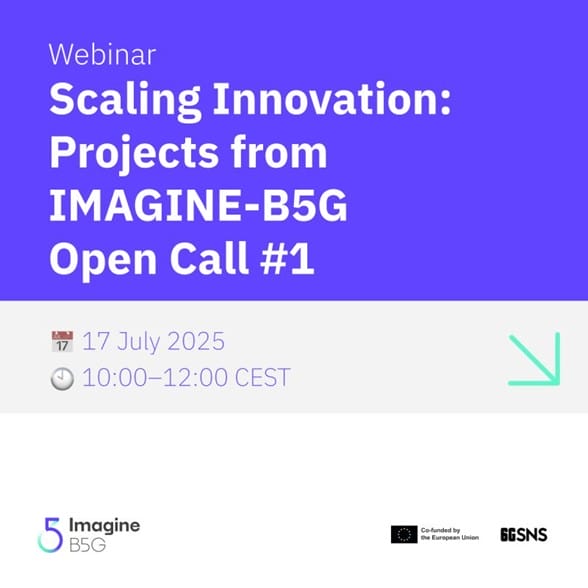
On 17 July 2025, the IMAGINE-B5G project held a webinar presenting the outcomes of the Open Call #1, highlighting innovations developed by startups, SMEs, large companies, and research organizations. The online event ran from 10:00 to 12:00 CEST.
The webinar featured presentations from beneficiaries who tested and validated their advanced 5G and Beyond 5G (B5G) solutions on the IMAGINE-B5G infrastructure. Projects covered a range of vertical applications and technical enhancements deployed through pilot trials.
The first open call, which closed in September 2023, invited third parties to propose use cases and technical contributions. Funded projects were granted up to €100,000 for single partners or €140,000 for two partners to conduct pilots and trials, with durations of up to 12 months. For hardware and software platform extensions, budgets reached €150,000 for one partner or €200,000 for two, with project durations up to 18 months.
Demonstrations and testing tools presented by 6G-SANDBOX Webinar
______
On 3 July 2025, the 6G-SANDBOX project hosted a webinar titled “Advanced Simulation and Testing Solutions for B5G/6G Enabling Technologies.” The event was organized by Siradel, winner of Open Call 1 with the Rayplicate project.
The webinar provided technical insights into next-generation wireless technologies, featuring live demonstrations of state-of-the-art simulation and testing tools designed for Beyond 5G (B5G) and 6G systems. Additionally, it offered an in-depth overview of the 6G-SANDBOX project’s role in accelerating innovation through large-scale experimentation.
UNITY-6G participated in ITU-T Focus Group Meeting on AI-Native Networks
______
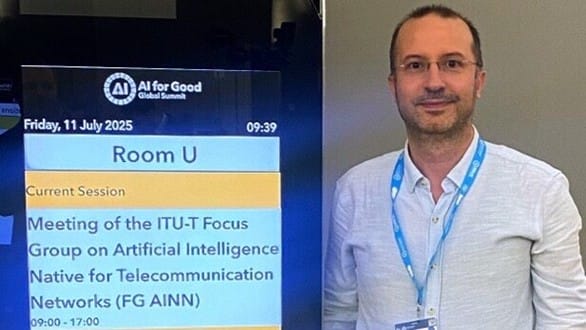
On 11 July 2025, the UNITY-6G project was represented by project coordinator Engin Zeydan at the 4th meeting of the ITU-T Focus Group on Artificial Intelligence Native for Telecommunication Networks (FG-AINN), held in Geneva, Switzerland. The session took place in the context of the AI for Good Global Summit and the WSIS+20 High-Level Event, highlighting the convergence of artificial intelligence, telecommunications, and global digital development.
The meeting brought together experts from network operators, technology vendors, standards development organizations, and academic institutions. Discussions focused on the integration of AI into network architectures from the design phase, with the objective of enabling intelligent, autonomous, and adaptive networks.
FG-AINN was established by ITU-T Study Group 13 following WTSA-24. Its mission is to define the requirements and design principles of AI-native networks, which contrast with conventional systems by embedding AI capabilities directly into the network fabric. This approach aims to support features such as self-management, self-healing, and automated optimization.
Key themes of the group’s work include architectural design, innovative use cases, standardization challenges, and collaboration across industry and academia.
Key insights from PREDICT-6G shared @ MONDRAGON corporation event
______
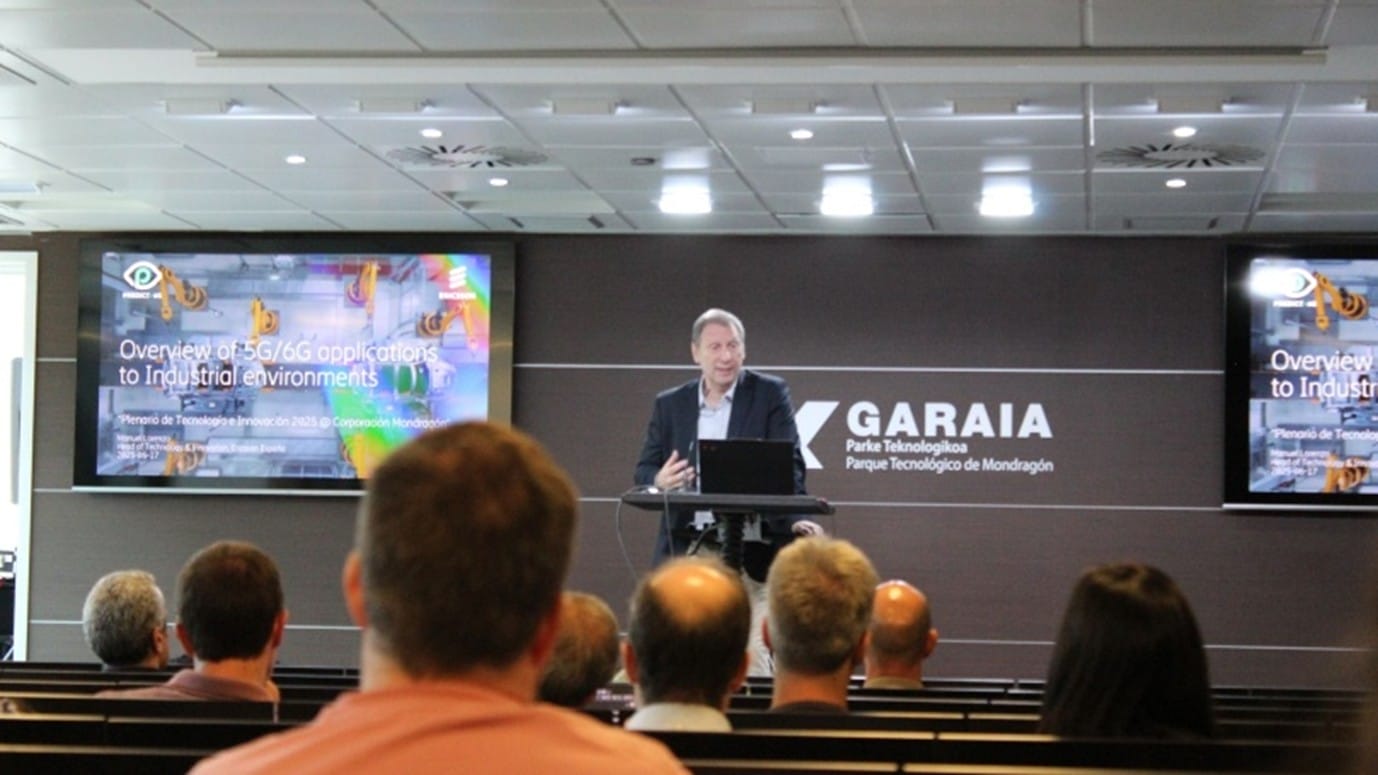
As the PREDICT-6G project approached its conclusion, consortium members remained active in disseminating their research outcomes accumulated over two and a half years.
Manuel Lorenzo, Head of Technology and Innovation at Ericsson Spain and member of the PREDICT-6G Project Management Committee, was invited by MONDRAGON Corporation to present key insights and trends related to 5G and 6G evolving technologies as enablers of Industry 4.0 and Industry 5.0 scenarios.
During the event, concrete experiences and learnings from projects conducted at the 5TONIC laboratory over the past eight years were shared. The presentation reflected on influential trends shaping the transition from the current 5G-enabled Industry 4.0 state towards the emerging 6G-enabled Industry 5.0 ecosystem. These trends had been identified in a 5G-PPP white paper coordinated by Manuel Lorenzo, which included significant contributions from PREDICT-6G researchers.
More than 60 representatives from MONDRAGON firms, predominantly operating in manufacturing sectors such as automotive, aerospace, and railway industries, acknowledged the importance of the technological developments discussed. Particular focus was given to deterministic networking and digital twinning, central research themes of PREDICT-6G. The afternoon workshops provided a platform to explore new innovation, business, and collaboration opportunities based on these topics.
Network Digital Twins presented by 6G-TWIN @ webinar series launch
______
The 6G-TWIN project launched a webinar series titled “Shaping the Digital Twin Future of Telecommunications”, aiming to examine the role of Network Digital Twins (NDTs) in the evolution of 6G networks. The initiative focused on presenting the project’s technical advancements, including real-time data integration, AI-based mechanisms, and simulation tools designed to enable adaptive and intelligent network architectures.
The first session, held on 22 July 2025, introduced the 6G-TWIN methodology for NDT architecture, component modelling, and performance evaluation. It addressed key aspects such as modular design principles, simulation frameworks, and assessment approaches. The session featured contributions from Ayat Zaki Hindi and Sébastien Faye (Luxembourg Institute of Science and Technology), Paola Andrea Soto Arenas (imec / University of Antwerp), and Gaetano Volpe (Polytechnic of Bari).
6G-XR @ Mentoring session at IEEE MeditCom 2025
______
The IEEE Mediterranean Communication and Computer Networking Conference (IEEE MeditCom 2025) took place in Nice, France, bringing together researchers, professionals, and industry experts to explore advances in communication technologies. As part of the conference, a dedicated mentoring session was held on July 9, co-organized by IEEE ComSoc Young Professionals (YP) and Women in Communications Engineering (WICE). The session aimed to connect early-career participants with established figures in academia and industry through direct dialogue and professional guidance.
The 6G-XR project participated in this initiative through Dr. Markus Muck, Principal Engineer at Intel Deutschland GmbH and project partner, who served as one of the invited mentors. Alongside other distinguished figures such as Prof. Ana García Armada and Prof. Angela Yingjun Zhang, Dr. Muck contributed to discussions on career development, technological challenges, and innovation pathways in the communications sector.
6G-PATH second major XR trial presented
______
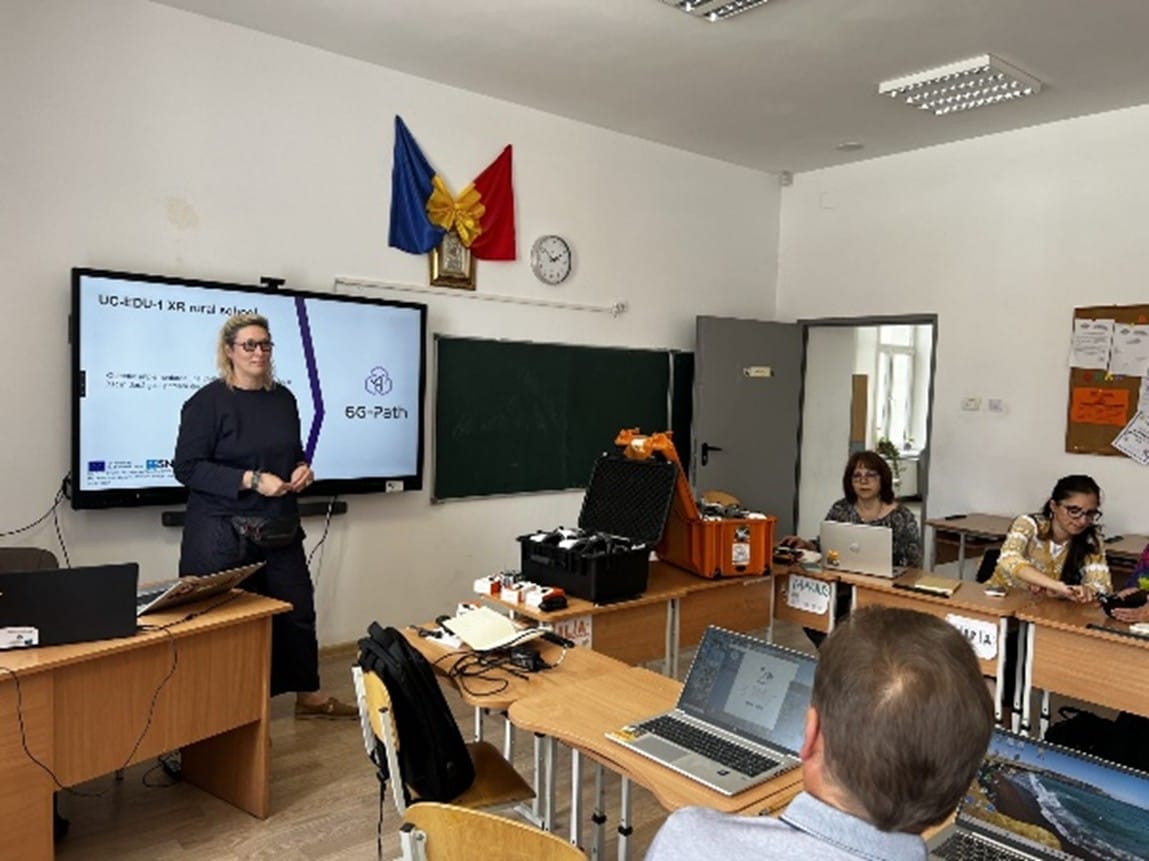
In June 2025, the 6G-PATH project conducted its second major XR trial at “Nicolae Russu” School in rural Romania, training 17 educators on XR technologies and their classroom integration. Teachers gained hands-on experience with VR/AR tools and developed curriculum-aligned lessons, preparing to deploy XR for student learning starting September 2025.
OPTI-6G Participated @ the FRONT Workshop 2025 on Optical Networking
______

On 10 July 2025, the OPTI-6G project took part in the FRONT Workshop 2025, held in a hybrid format at UPC Barcelona, Spain. The event gathered experts and researchers to discuss the future of optical networking in the context of emerging technologies, including 6G.
The workshop’s program focused on two main panels: optical communication systems and networks for AI clusters and data centers, and optical communication systems and networks for x-haul and next-generation FTTx. These discussions provided a platform for collaboration and innovation among participants.
Further details on the event’s program is available here.
6G-TWIN promoted its vision for AI-native through Network Digital Twins
______
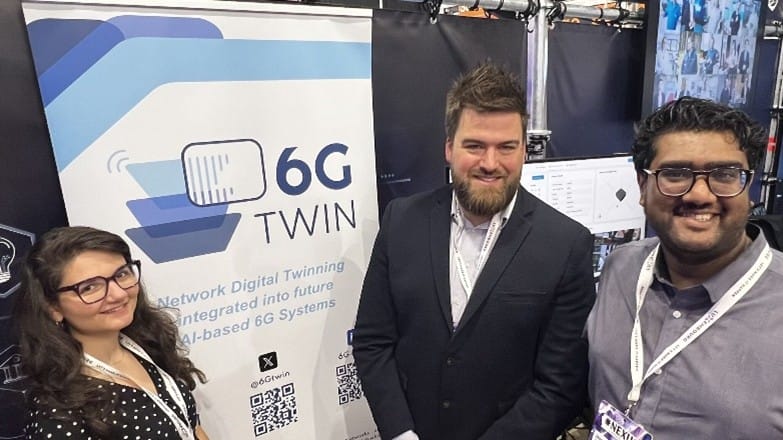
The 6G-TWIN project recently participated in two major events, promoting its vision for AI-native 6G networks through Network Digital Twins (NDTs).
At Nexus 2025 in Luxembourg, held on 17–18 June, 6G-TWIN was featured prominently. The event gathered innovators, startups, and industry leaders to explore advances in AI and emerging technologies. The Luxembourg Institute of Science and Technology (LIST), project coordinator, hosted a stand presenting 6G-TWIN’s objectives and technical approach. Dr. Sébastien Faye, project coordinator, delivered a presentation outlining the project’s scientific foundation and innovation potential to a broad audience.
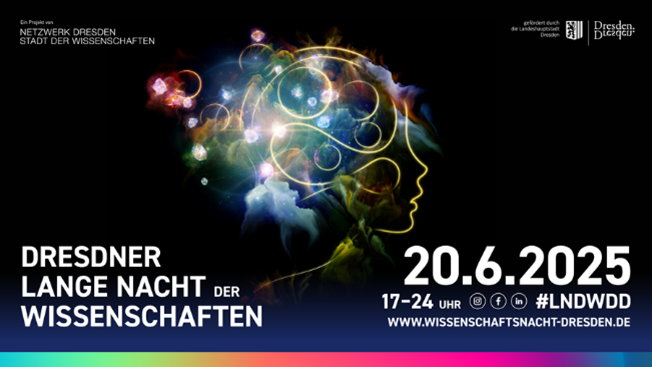 On 20 June, 6G-TWIN took part in the Dresden Science Night (Lange Nacht der Wissenschaften), one of Germany’s largest public science outreach events. Hosted at the Technische Universität Dresden lab, the project engaged between 200 and 400 visitors, including families, students, and researchers. Attendees interacted directly with researchers and explored project materials and demonstrations, enhancing public understanding of AI-native 6G systems and network digital twins.
On 20 June, 6G-TWIN took part in the Dresden Science Night (Lange Nacht der Wissenschaften), one of Germany’s largest public science outreach events. Hosted at the Technische Universität Dresden lab, the project engaged between 200 and 400 visitors, including families, students, and researchers. Attendees interacted directly with researchers and explored project materials and demonstrations, enhancing public understanding of AI-native 6G systems and network digital twins.
These participations contributed to raising awareness of 6G-TWIN’s innovative research and its role in shaping future connectivity infrastructures.
ENVELOPE has presented and opened its Open Call #1
______
On July 7, 2025, the ENVELOPE project held a webinar to present its architectural framework, core technologies, and the objectives of its first Open Call. The event brought together consortium representatives who outlined how external participants could engage with ENVELOPE’s experimentation platform to test advanced mobility use cases over B5G infrastructures.
The session was divided into two parts. The first introduced the ENVELOPE project, its architecture, and its main technology enablers. Presentations covered topics such as APIs, the Experimentation-as-a-Service approach, and real-world applications. The second part focused on the scope and participation guidelines of Open Call #1, followed by a Q&A session.
The full recording and speaker presentations were made available following the session. While the feasibility check application phase has closed, responses to visibility checks must be submitted by 15 July 2025. The final submission deadline for proposals has been extended to 15 August 2025.
Open Call #1 targets SMEs, startups, and research teams interested in testing innovative mobility services using ENVELOPE’s secure and distributed infrastructure.
6G-MIRAI-HARMONY presented the project’s AI native design @ AI for Good workshop
______
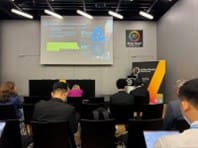
On 15 June 2025, the 6G-MIRAI-HARMONY project was presented at the AI for Good workshop focused on Machine Learning in Communication Networks. Henning Sanneck highlighted the project’s AI-native design approach for the 6G air interface and RAN, emphasizing the development of reliable and robust AI/ML techniques applicable to both cellular and cell-free networks.
The presentation also underlined the cross-regional collaboration between the European Union and Japan within the project. The event gathered leading experts in machine learning for networks, providing an opportunity for 6G-MIRAI to engage with key researchers shaping this field.
Acknowledgment was given to the organizers Vishnu Ram OV, Thomas Basikolo, Jiaying M eng, and others for hosting a well-curated series of talks and fostering connections among the community.
6G-VERSUS presented its Greek pilot @ the International Symposium “Navigating the Future of Traffic Management”
______
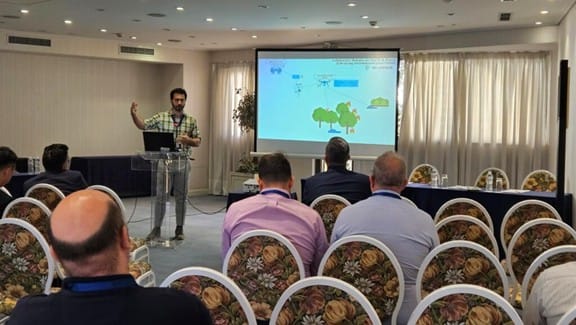
On 30 June 2025, the 6G-VERSUS project participated in the International Symposium “Navigating the Future of Traffic Management.” The event brought together global experts to address challenges and innovations in traffic systems, with a focus on resilience in the face of growing natural threats.
During Workshop 3, titled “How to plan and cope with significant abnormal natural events,” Xenofon Vasilakos, Technical Manager from I-SENSE Group/ICCS, presented the Greek pilot of the project. His talk, “Forest fires: anticipation, first response and the emerging role of Beyond-5G/6G networks,” examined how advanced connectivity can improve early warning mechanisms, support emergency services, and strengthen transport infrastructure resilience during climate-related disasters such as wildfires.
The session emphasized the integration of emerging technologies in risk assessment, infrastructure adaptation, and real-time disaster response, highlighting the contribution of Beyond-5G and 6G systems in these areas. 6G-VERSUS’s participation reflected the project’s commitment to exploring practical applications of future networks for societal resilience.
FIDAL introduced the 2025 Open Call Winners
______
On 26 June 2025, the FIDAL project hosted a webinar presenting the winners of its 2025 Open Call. The event highlighted innovative technologies currently in development and testing within the 5G and beyond ecosystem. It served as a platform for knowledge sharing and collaboration among participants.
During the webinar, representatives from the 2025 Open Call winners, including SafexCity, 5G4ZDM, ReDrone5G, GSHIELD, DARK5G, WOLF, and HoloFID, presented their projects. Additionally, three winners from the 2024 Open Call, B5G-Mobitrust, AI-HOLOCOM, and ISAFECO, returned to share their experiences, challenges, and results from the previous year.
The webinar also included a presentation of the FIDAL Repository, a resource providing access to project documentation, tools, and insights.
All presentations and the full recording of the event were made available online for interested parties. The FIDAL project announced plans to continue supporting and showcasing innovative 5G and digital infrastructure solutions through upcoming events.
iTrust6G reaffirms its commitment to advancing security in 6G networks @ SecSoft 2025
______
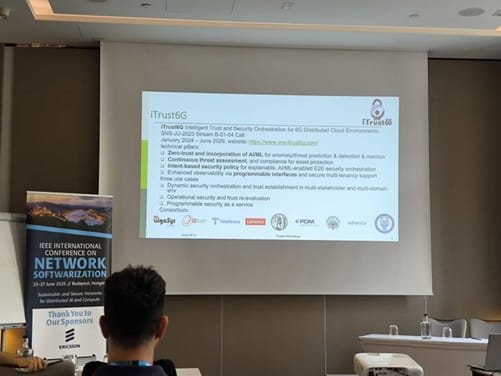
On 17 June 2025, delegates from the iTrust6G project took part in the SecSoft 2025 Workshop, held as part of the NetSoft Conference. The event brought together around 30 participants focused on security, privacy, and trust in software-defined and AI-enabled network environments.
Politecnico di Torino (POLITO), representing iTrust6G, presented the project’s concept and key innovations, contributing to discussions on building secure and trustworthy 6G systems. The workshop provided a platform for exchanging ideas related to trust-by-design principles essential for next-generation networks.
Participation reaffirmed iTrust6G’s commitment to advancing security in future communication infrastructures. The event was organized with support from the 6G Smart Networks and Services Industry Association and the Smart Networks and Services Joint Undertaking (SNS JU), alongside partners including i2CAT Research Centre, Telefónica, Lenovo, PDMFC, Adrestia R&D, National Technical University of Athens, and Gigasys Solutions.
TrialsNet showcased findings @ TUIASI Innovation Week 2025
______
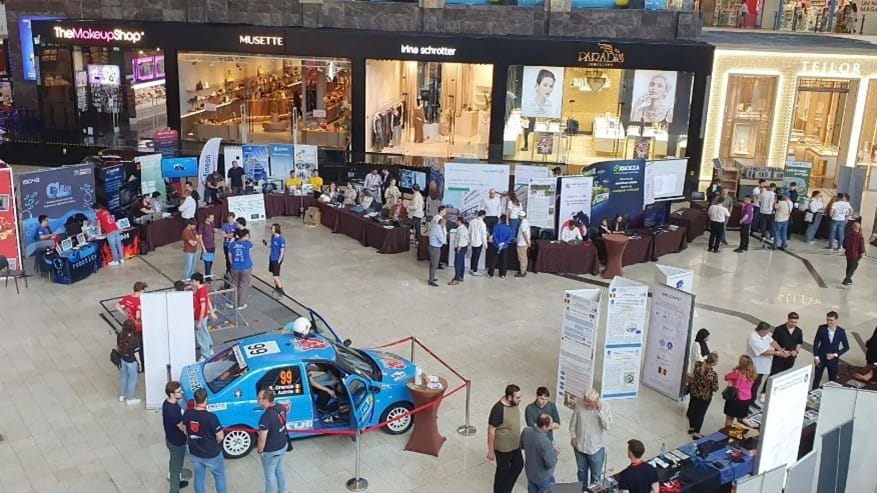
Between 2 and 10 June 2025, the Technical University Gheorghe Asachi of Iași (TUIASI) hosted its annual Innovation Week, a comprehensive event designed to foster creativity, strengthen ties between academia and industry, and promote the exploration of emerging technologies. The event gathered participants interested in presenting research projects, assessing the commercial potential of innovations, mentoring peers, and enhancing their understanding of technology evaluation.
During this event, Orange participated by showcasing their contributions and findings within the TrialsNet project. The presentation highlighted the project’s role in advancing telecommunications research and its practical implications.
TUIASI Innovation Week 2025 reinforced the university’s strategic role in innovation and technology transfer, providing a dynamic platform for knowledge exchange and collaboration between academic and business communities.

